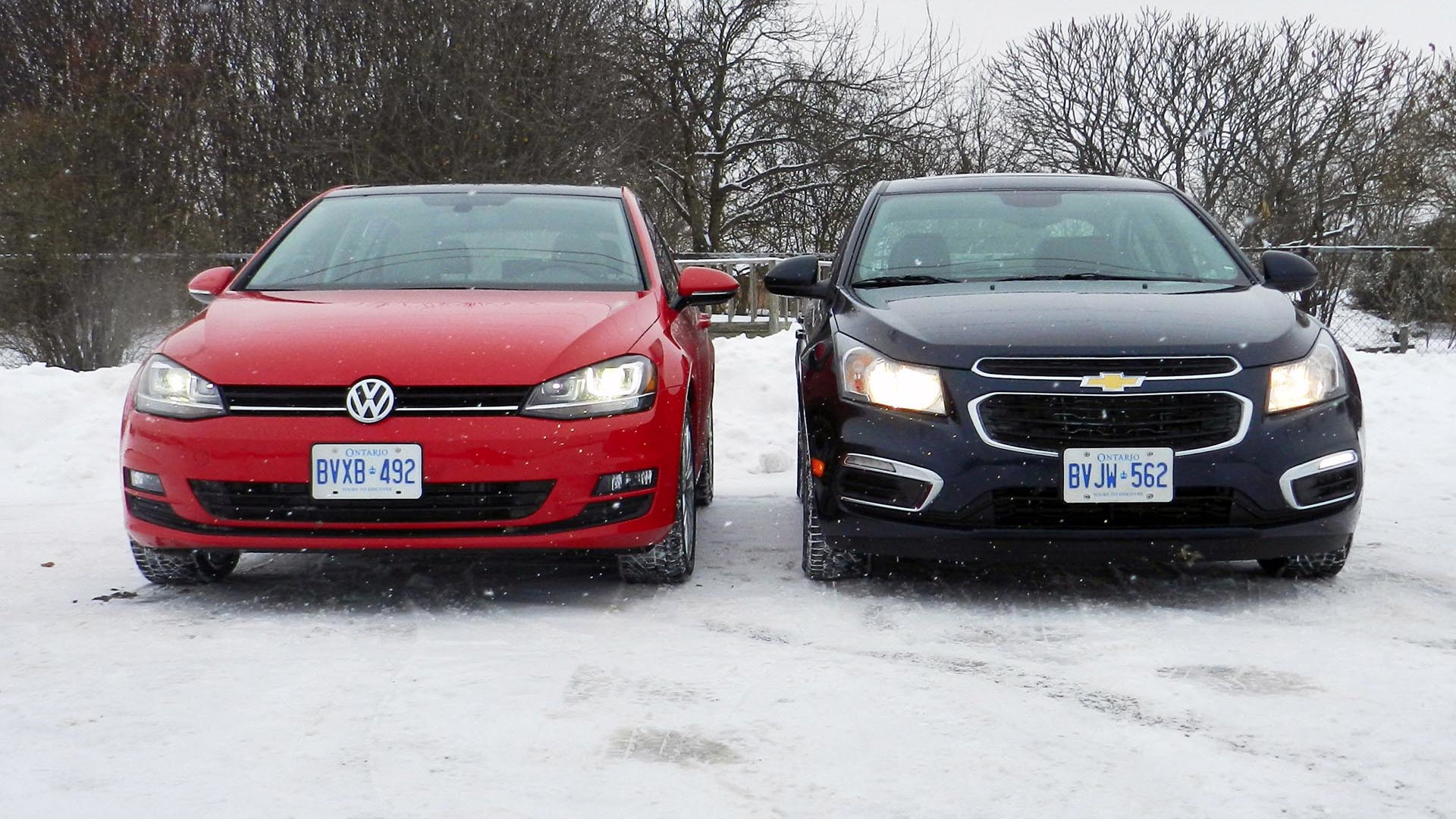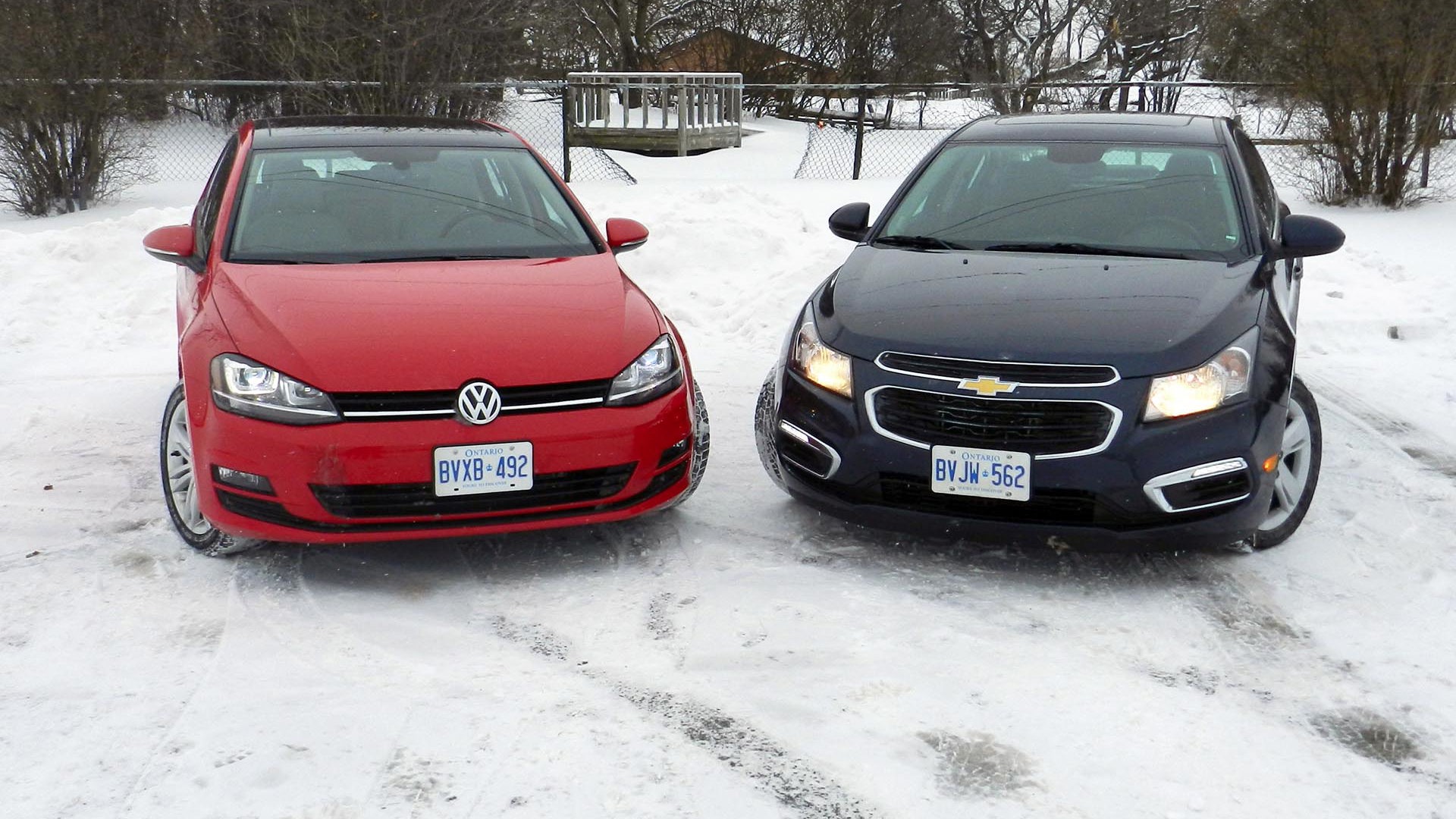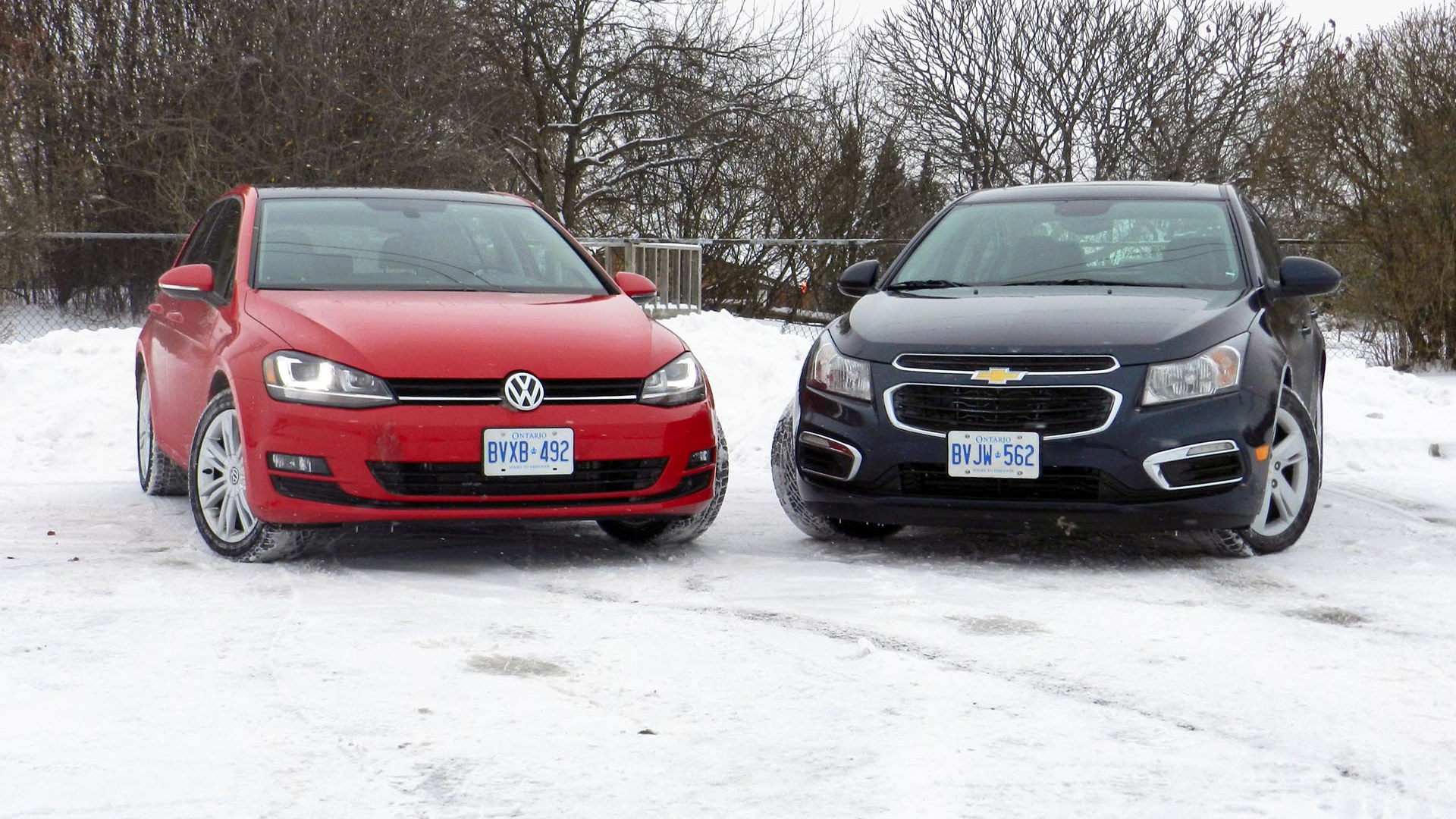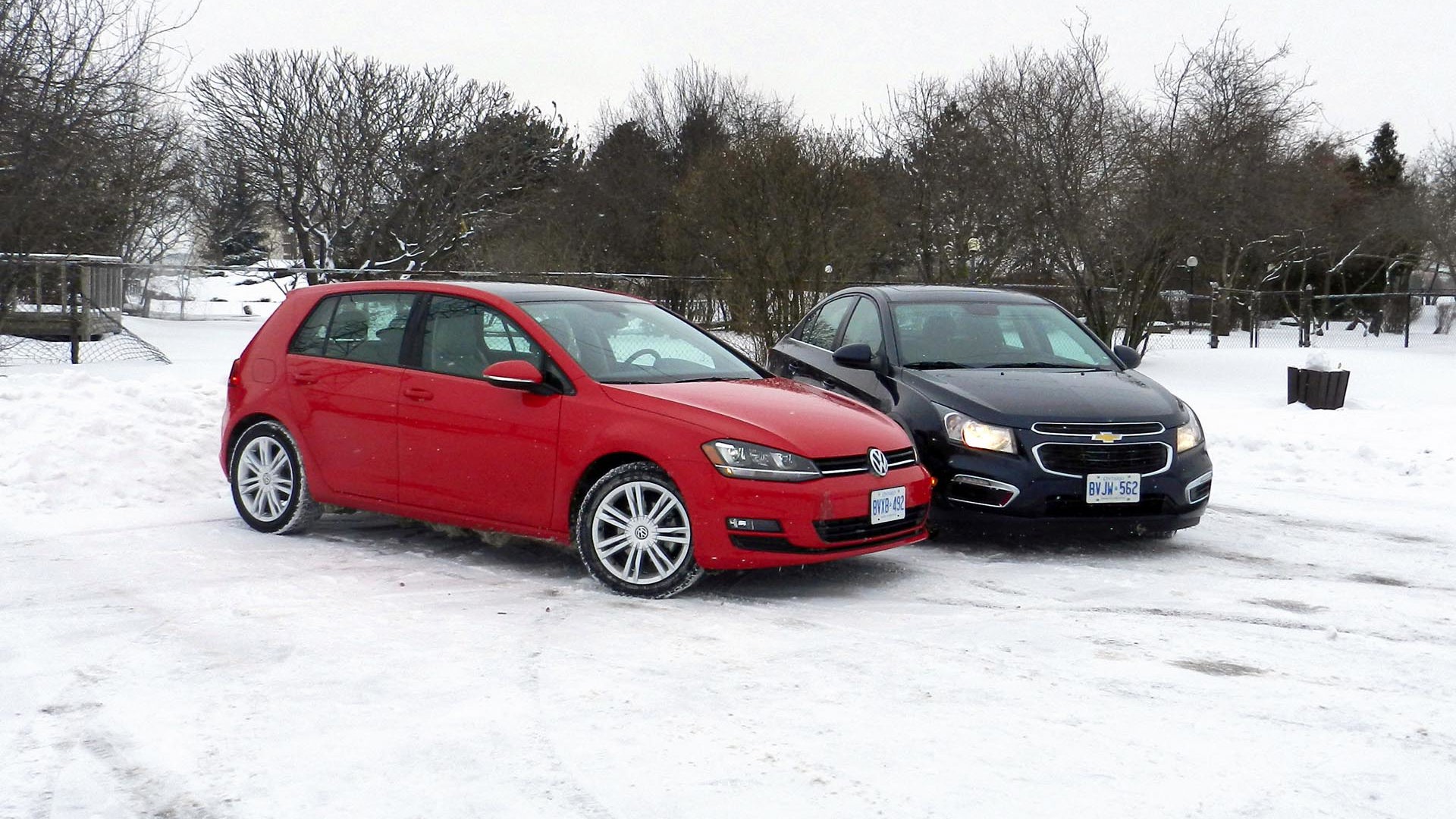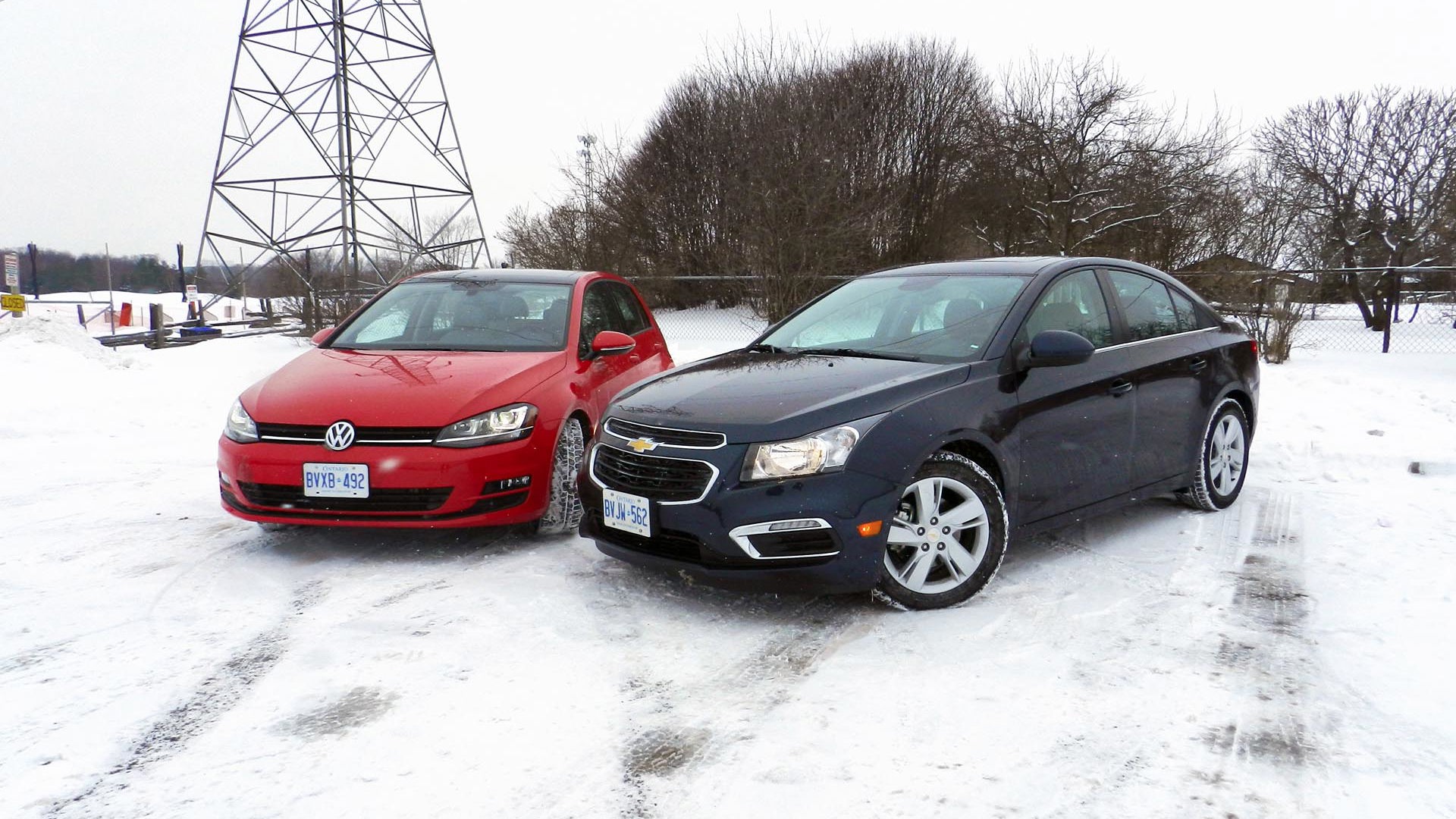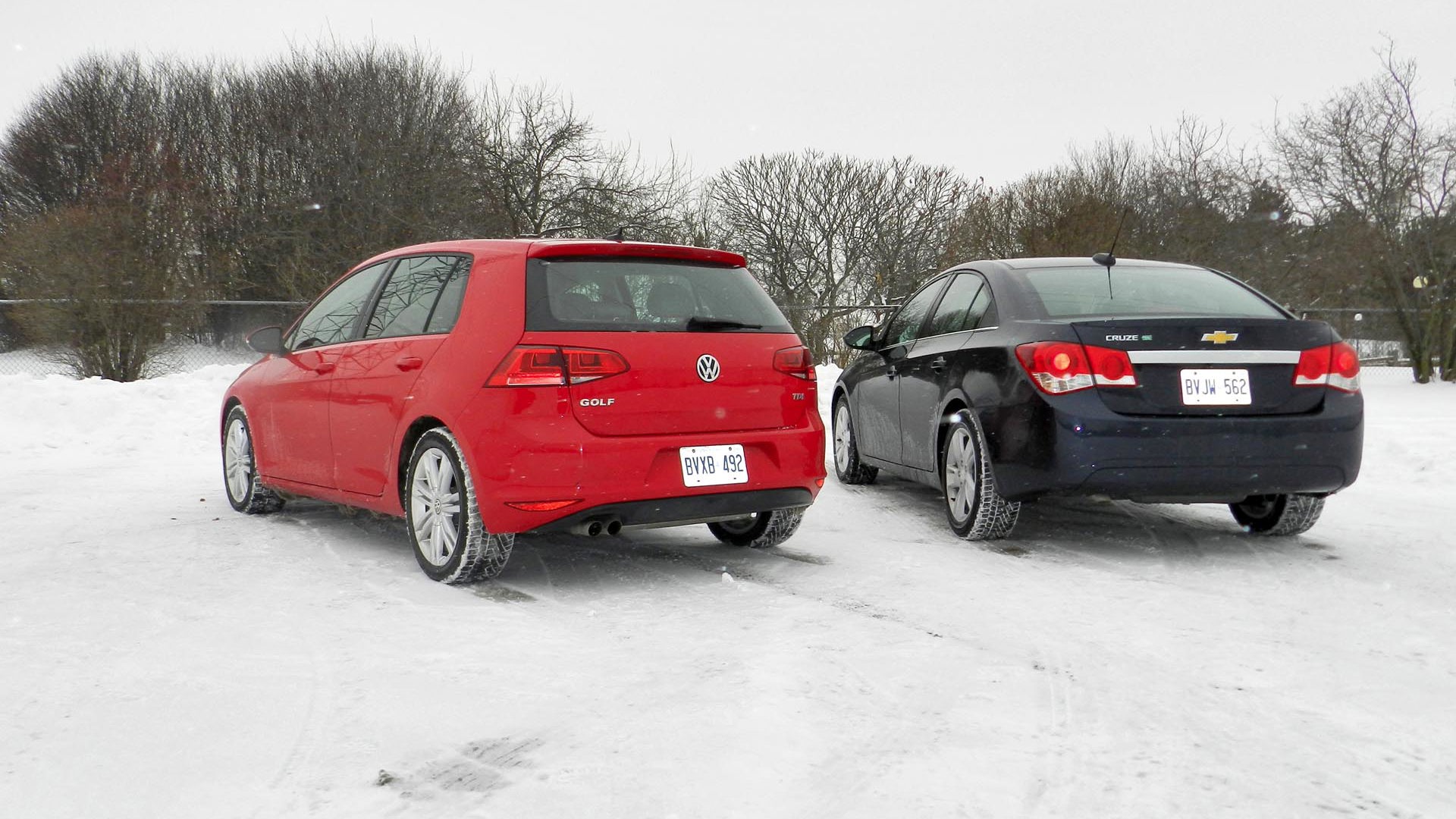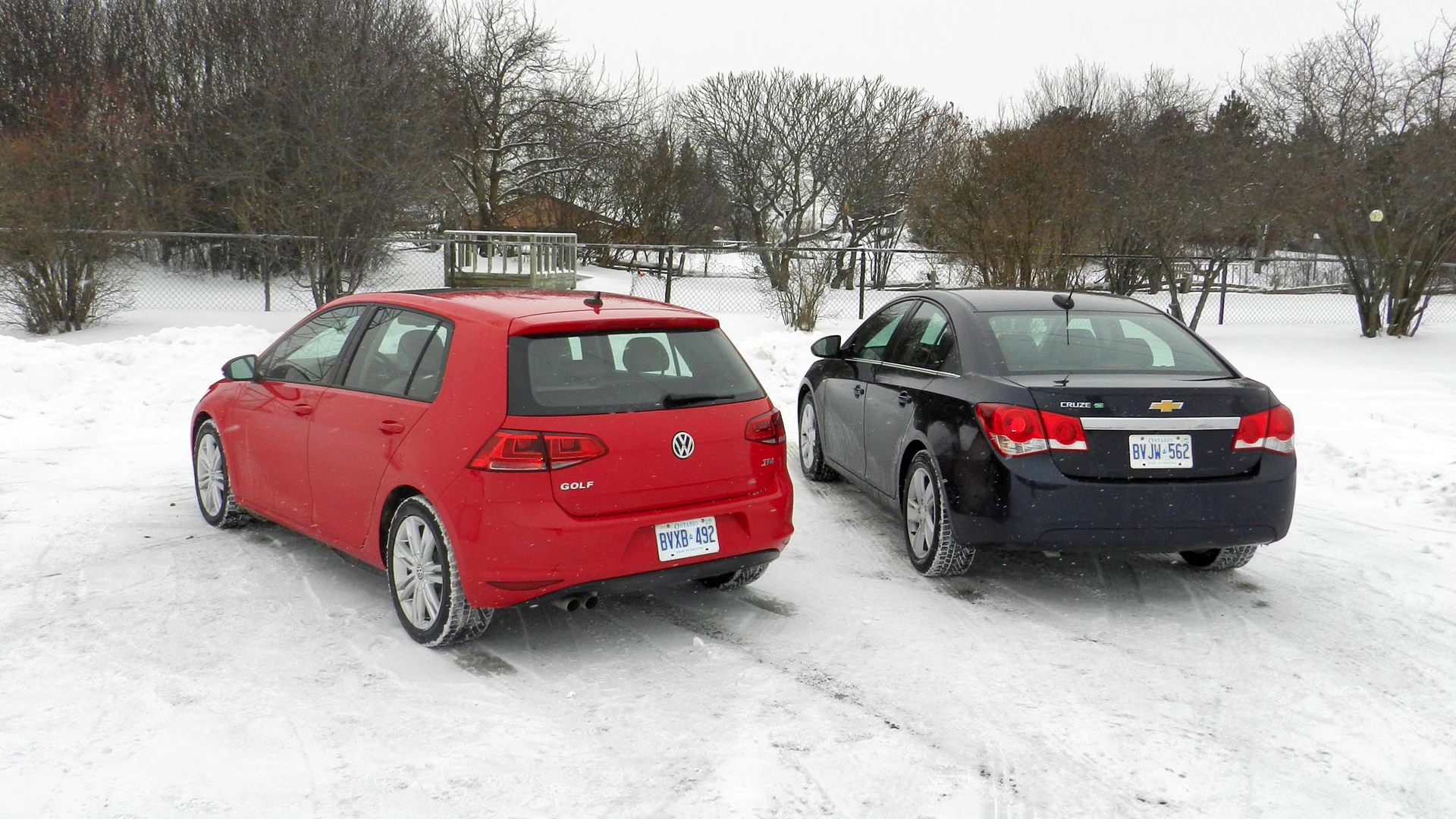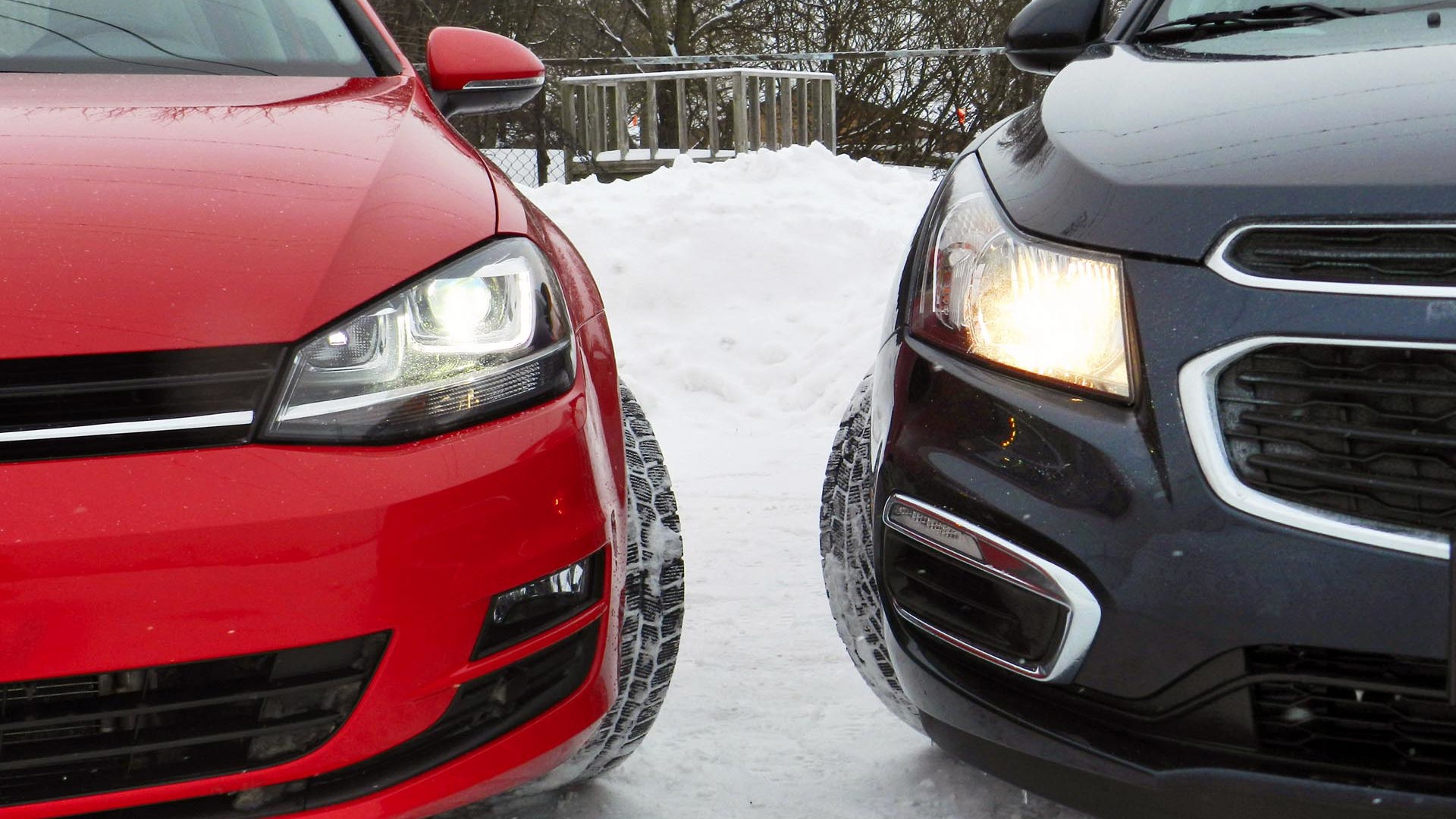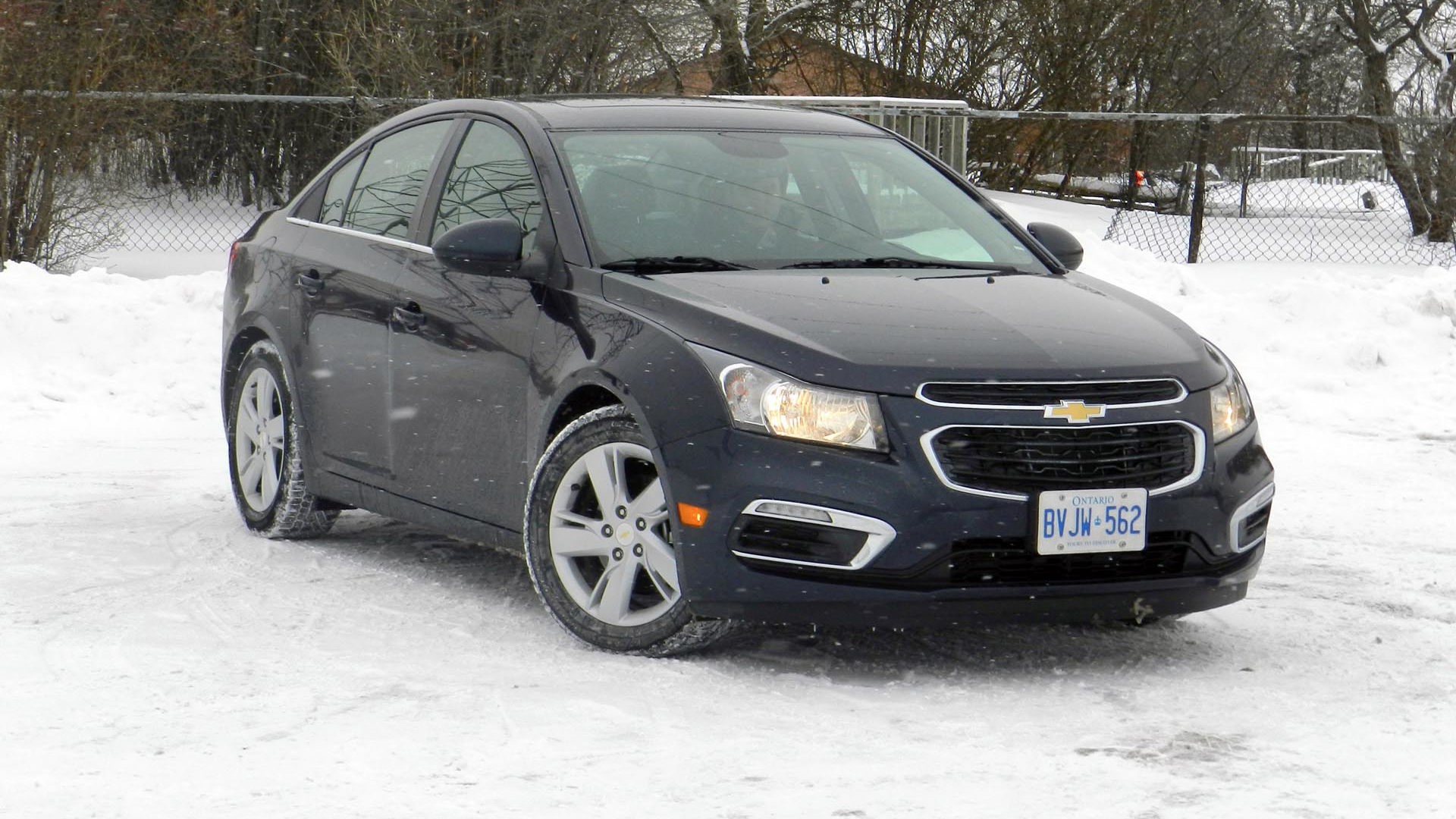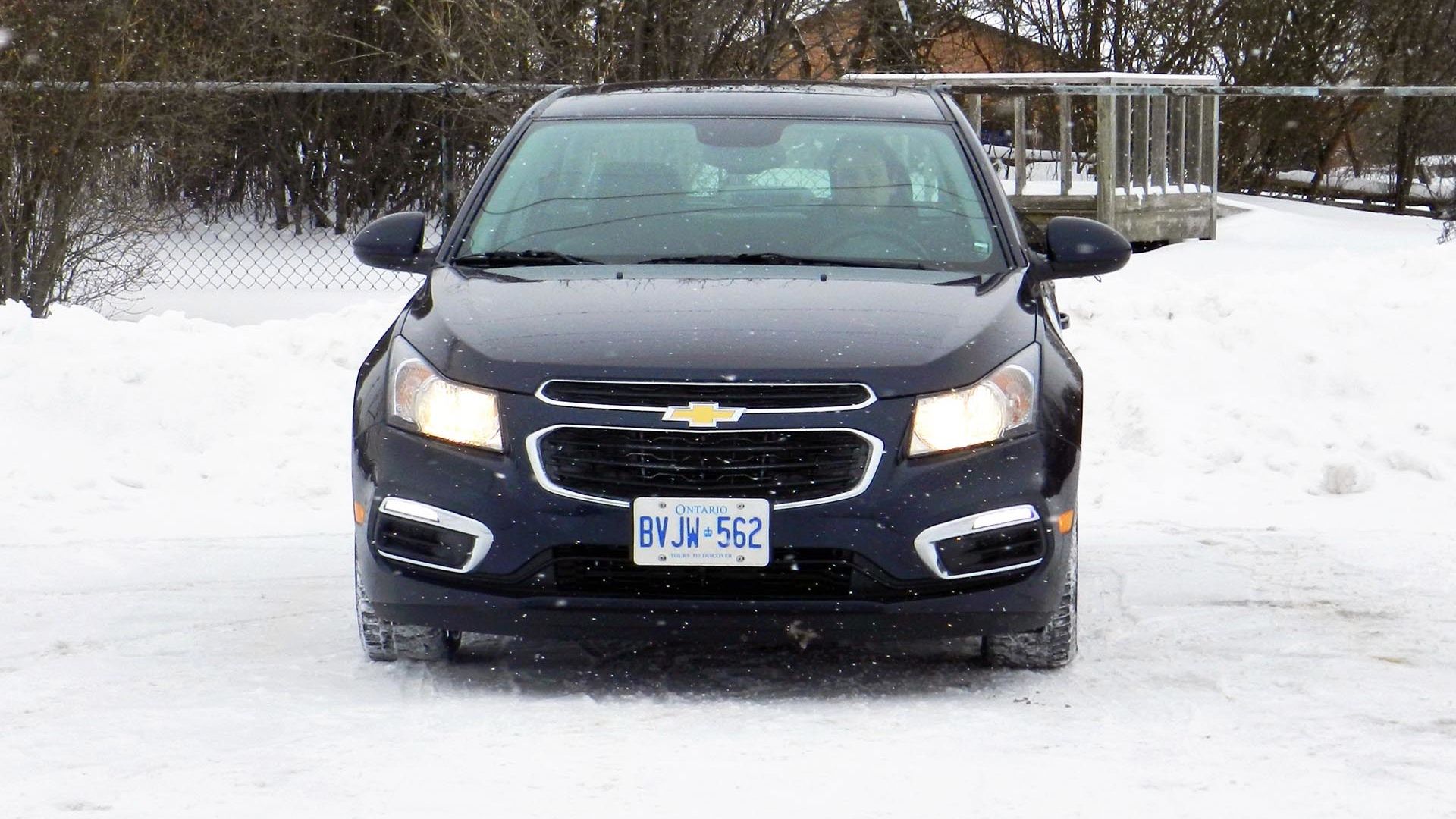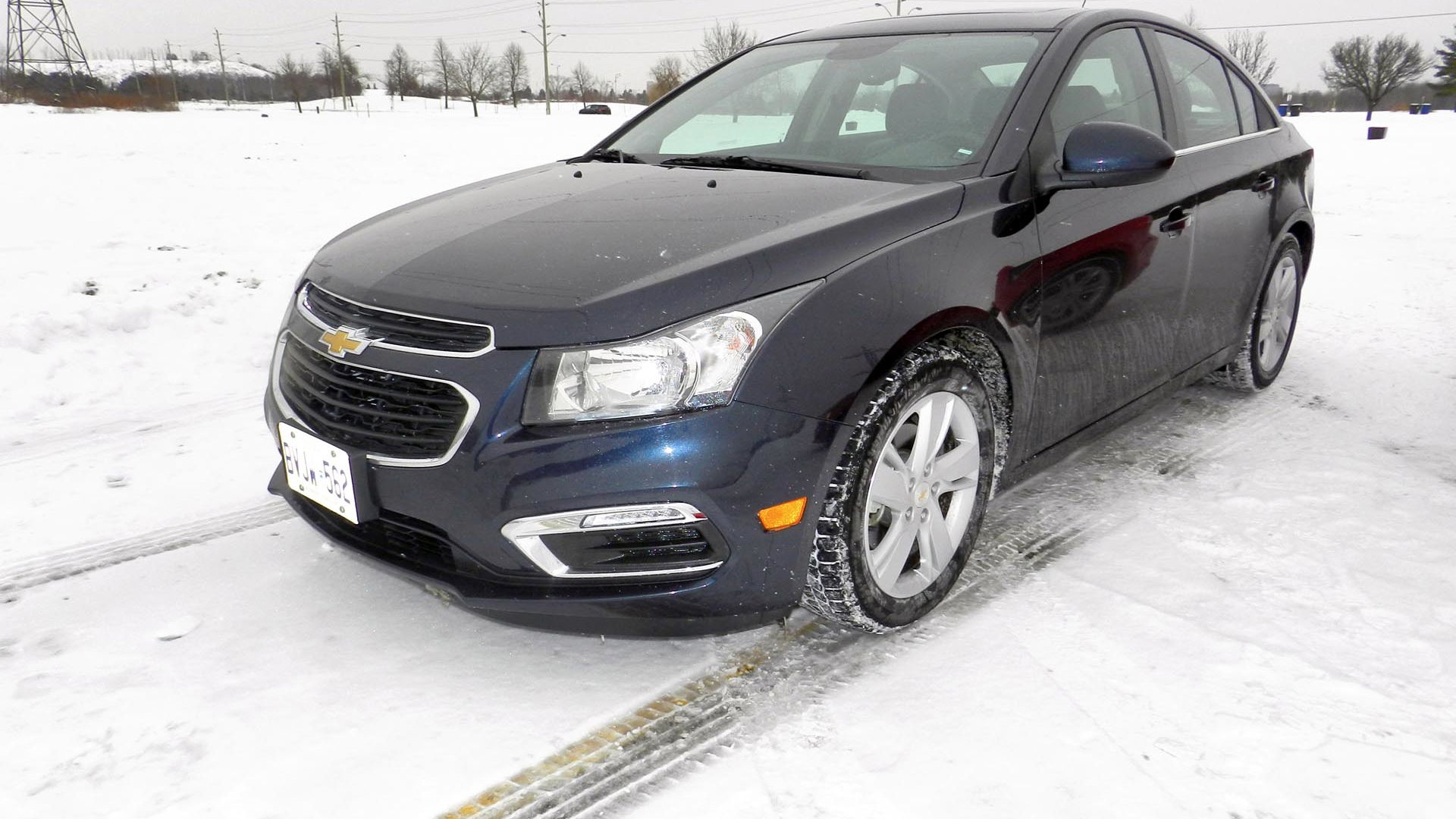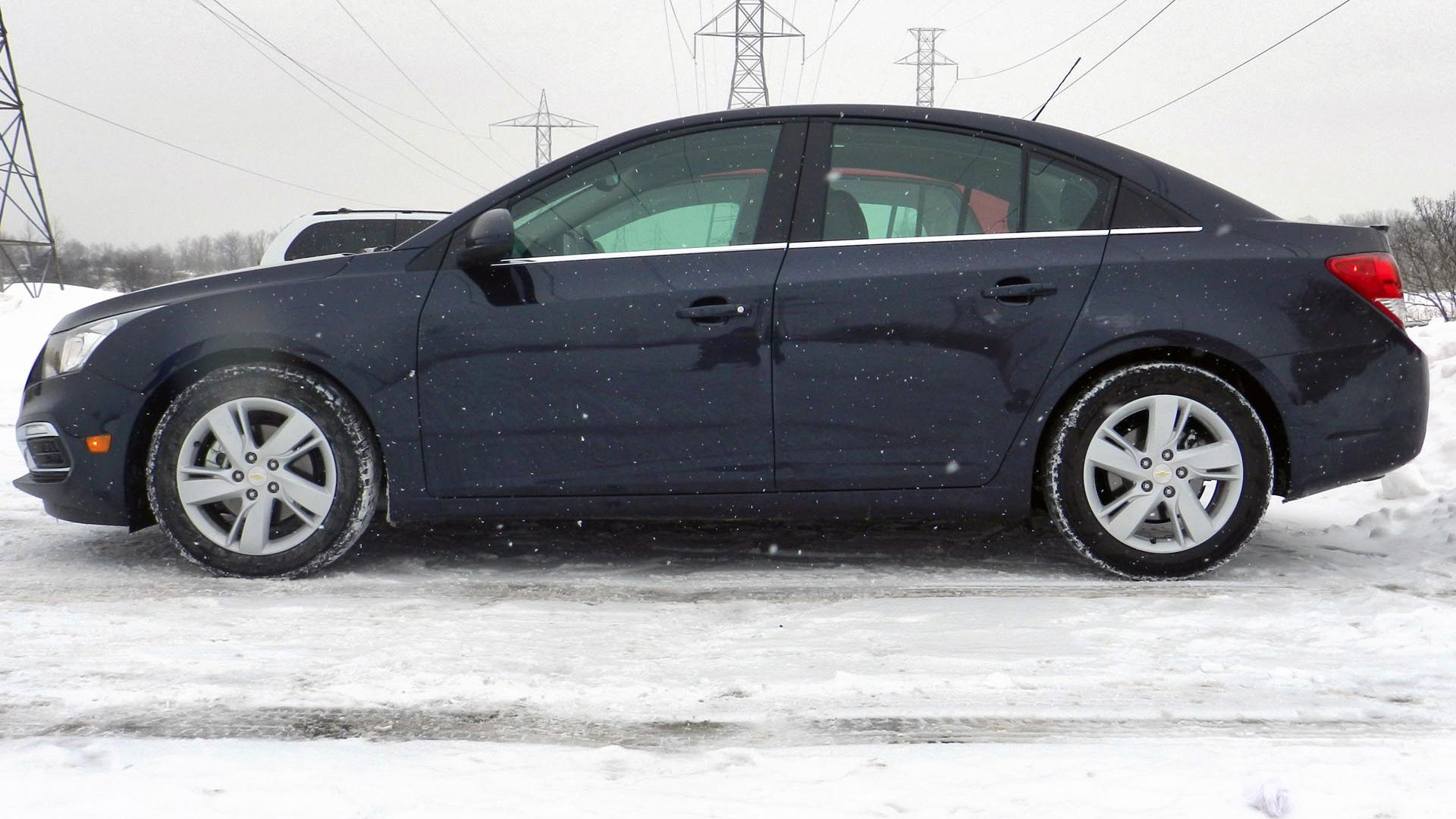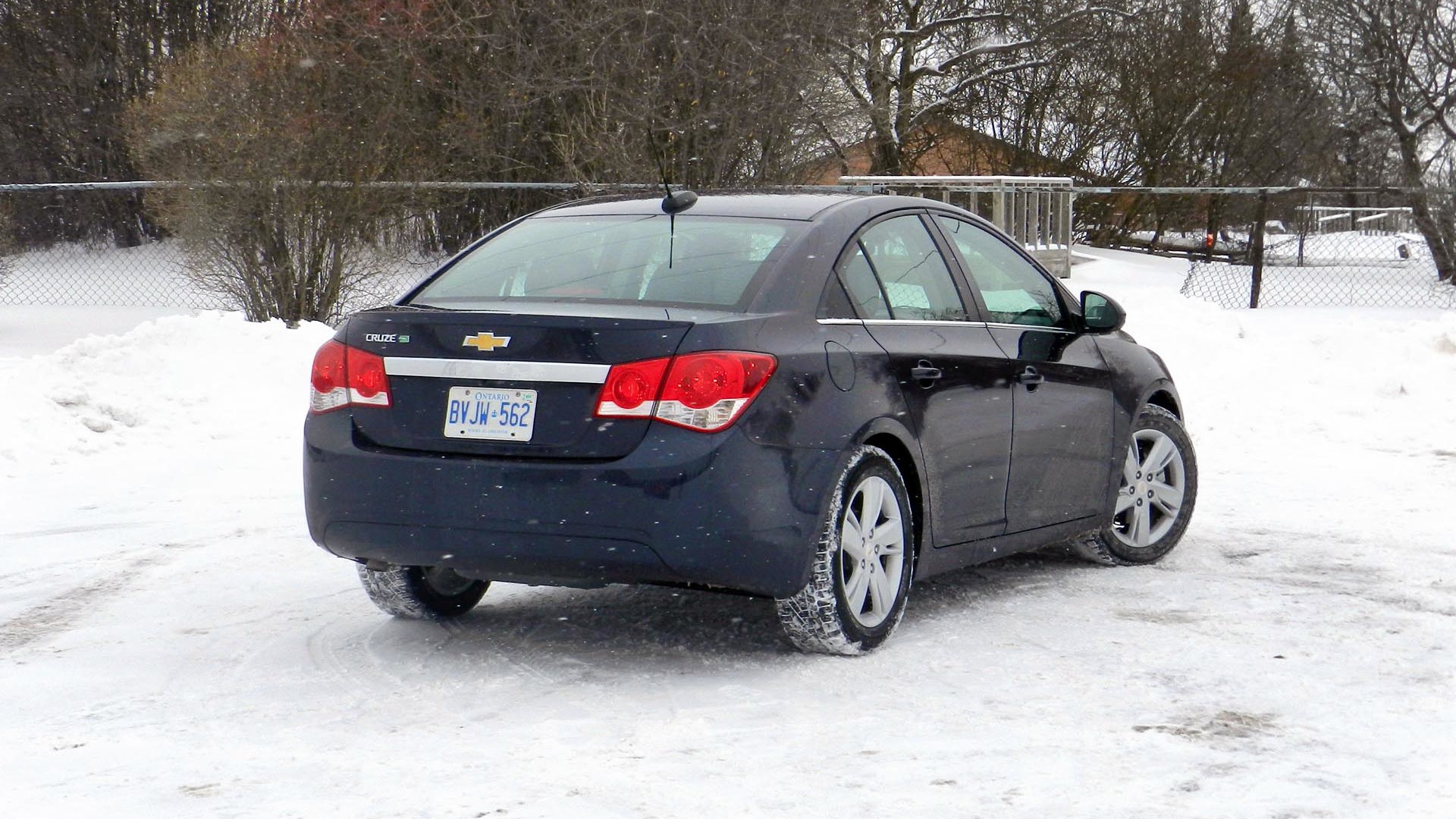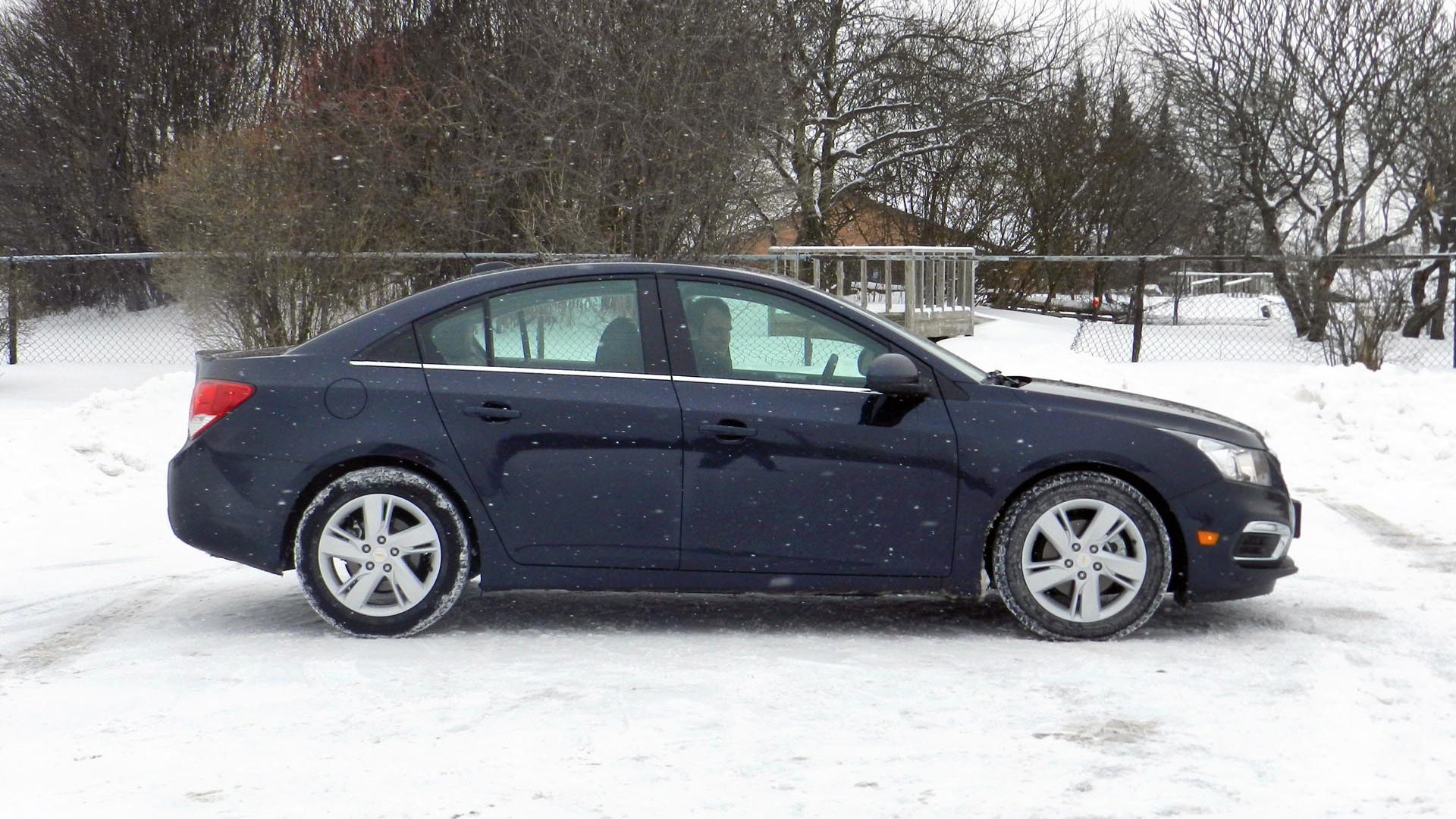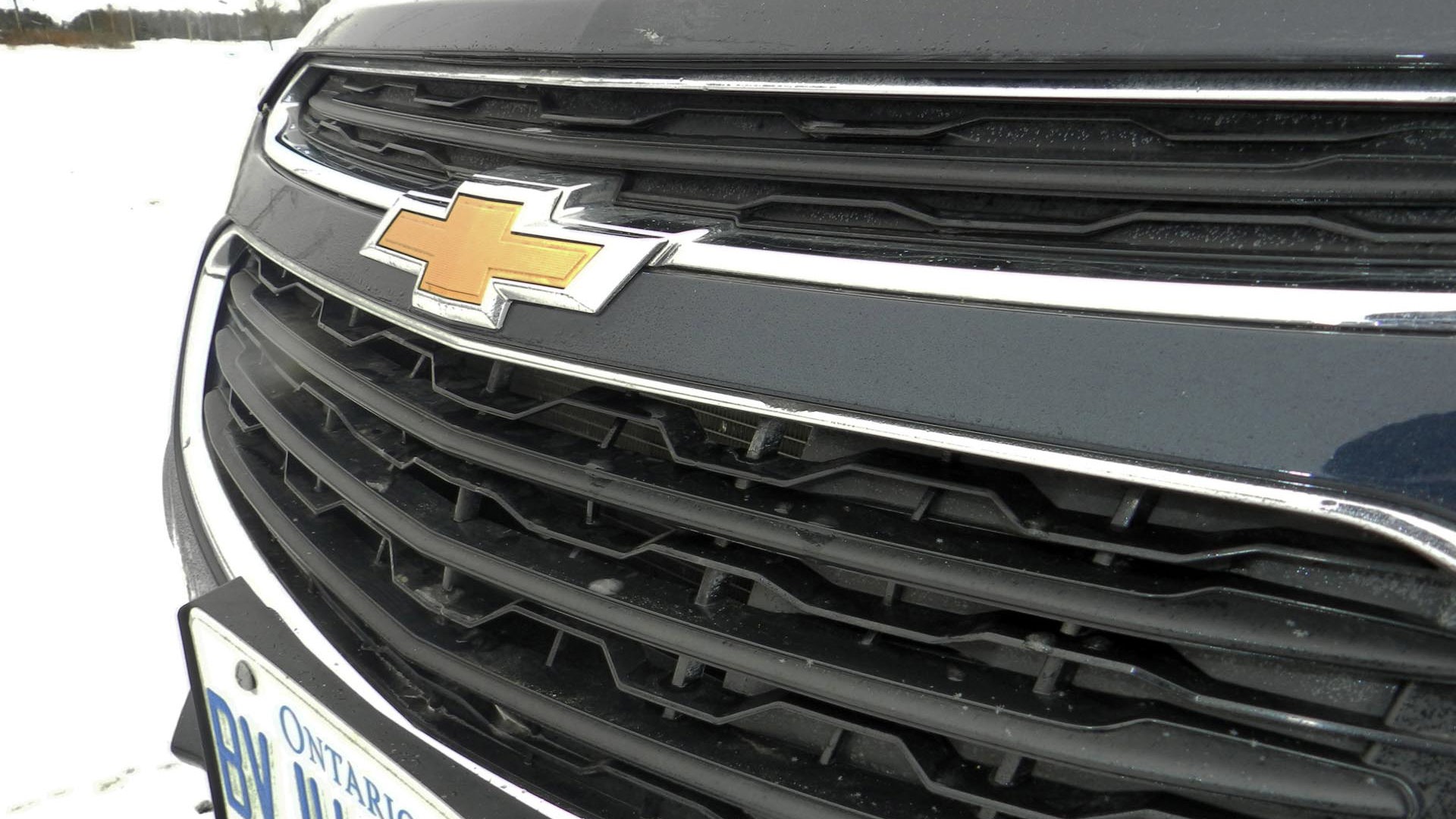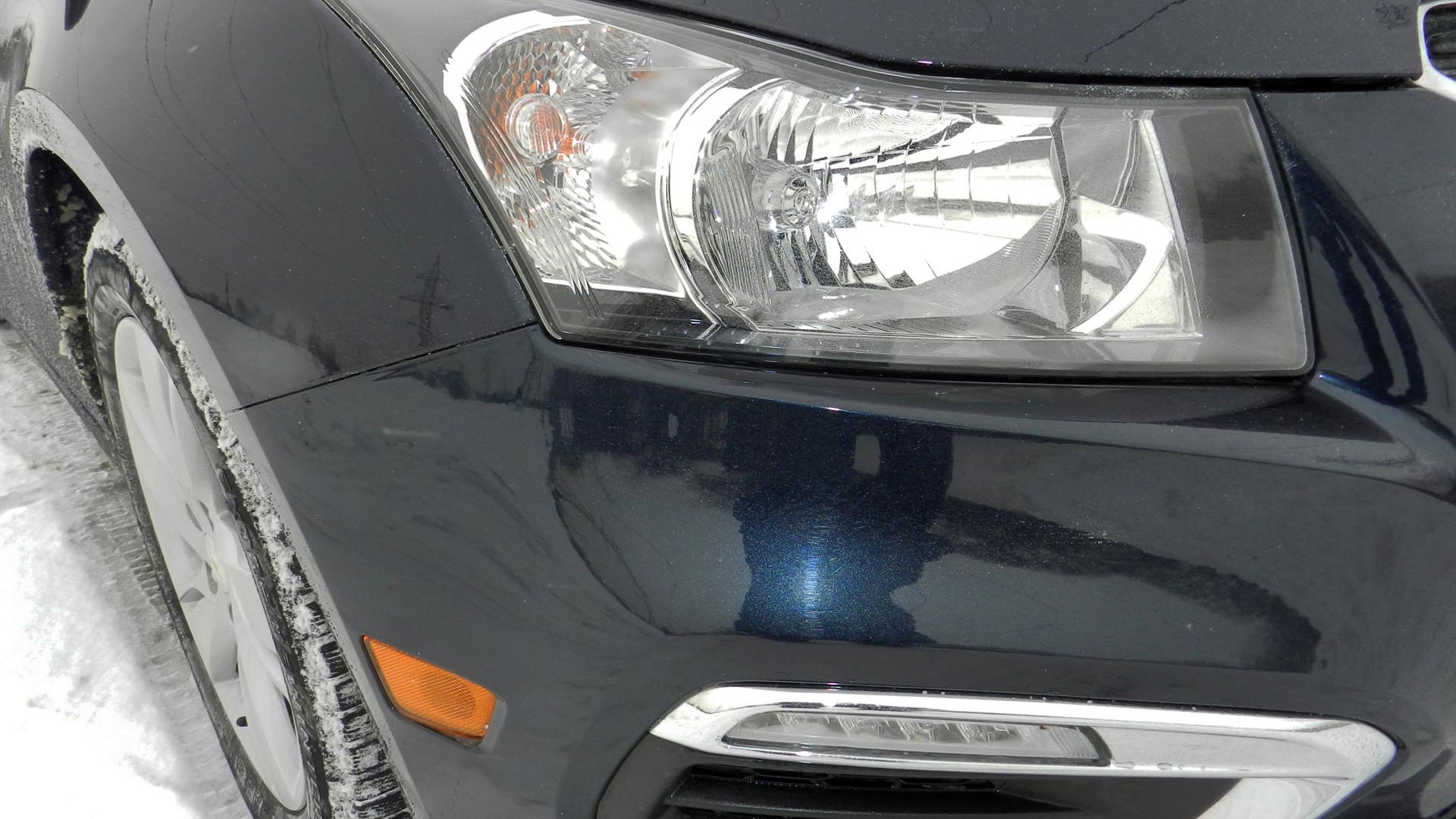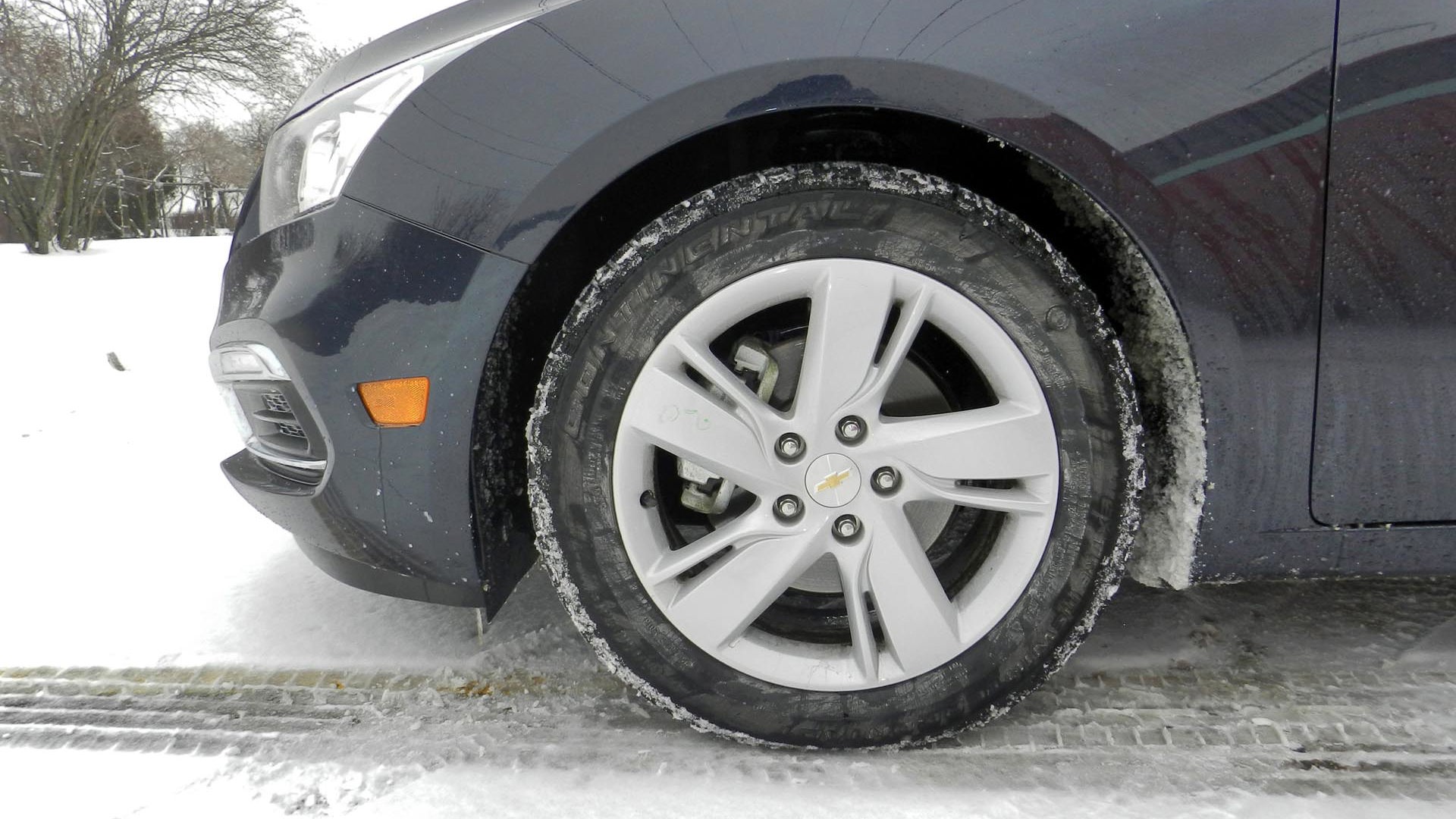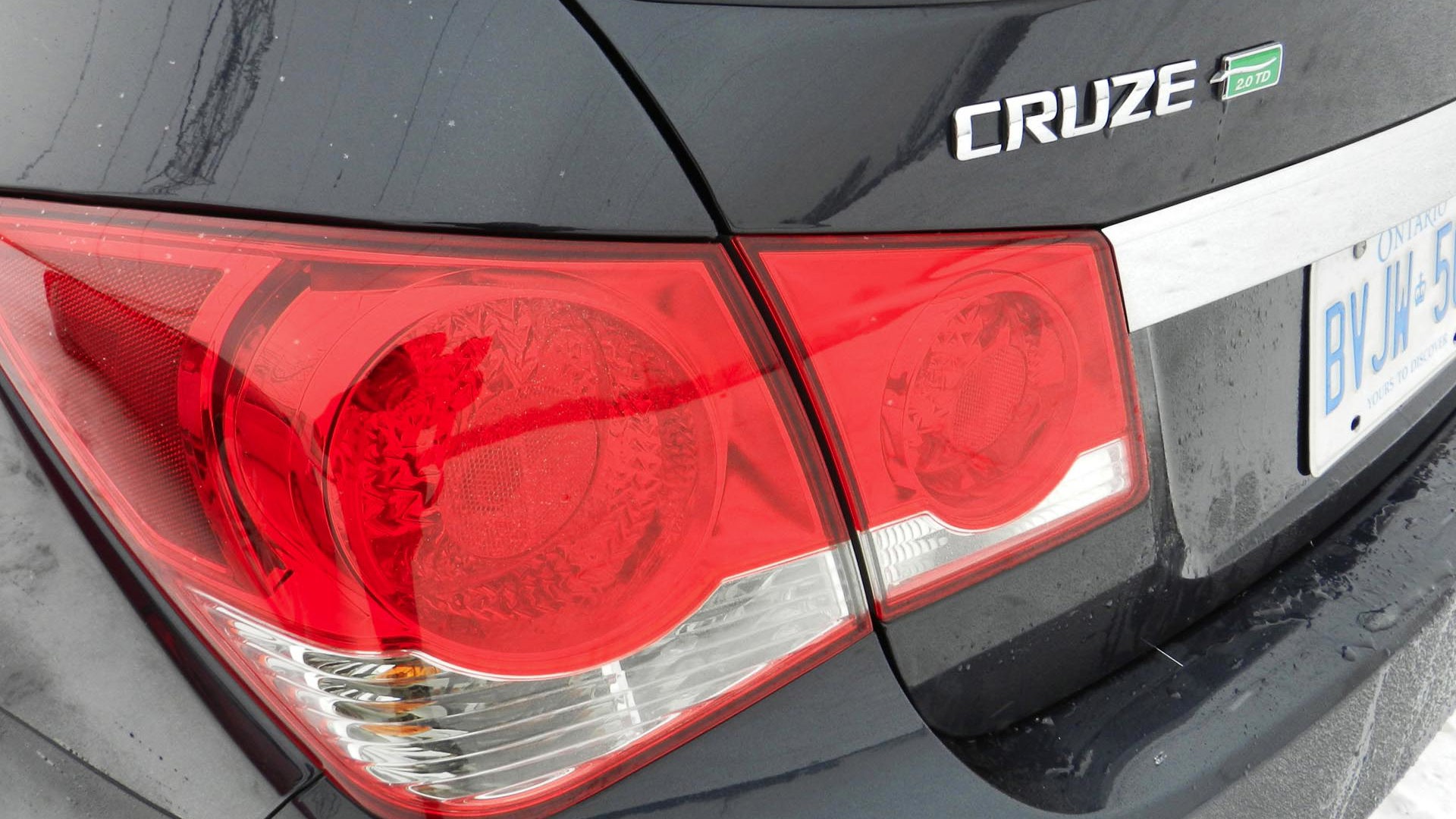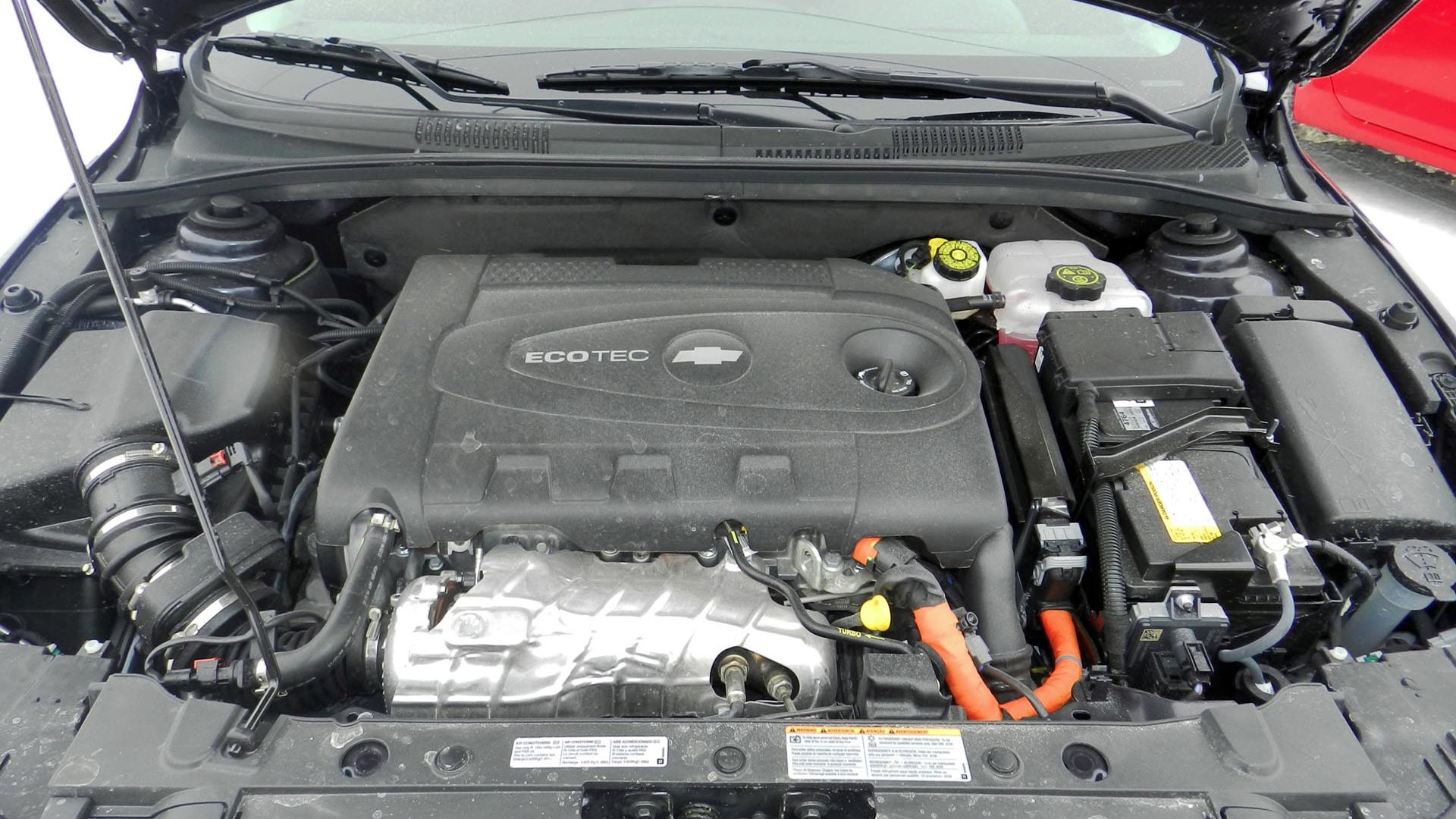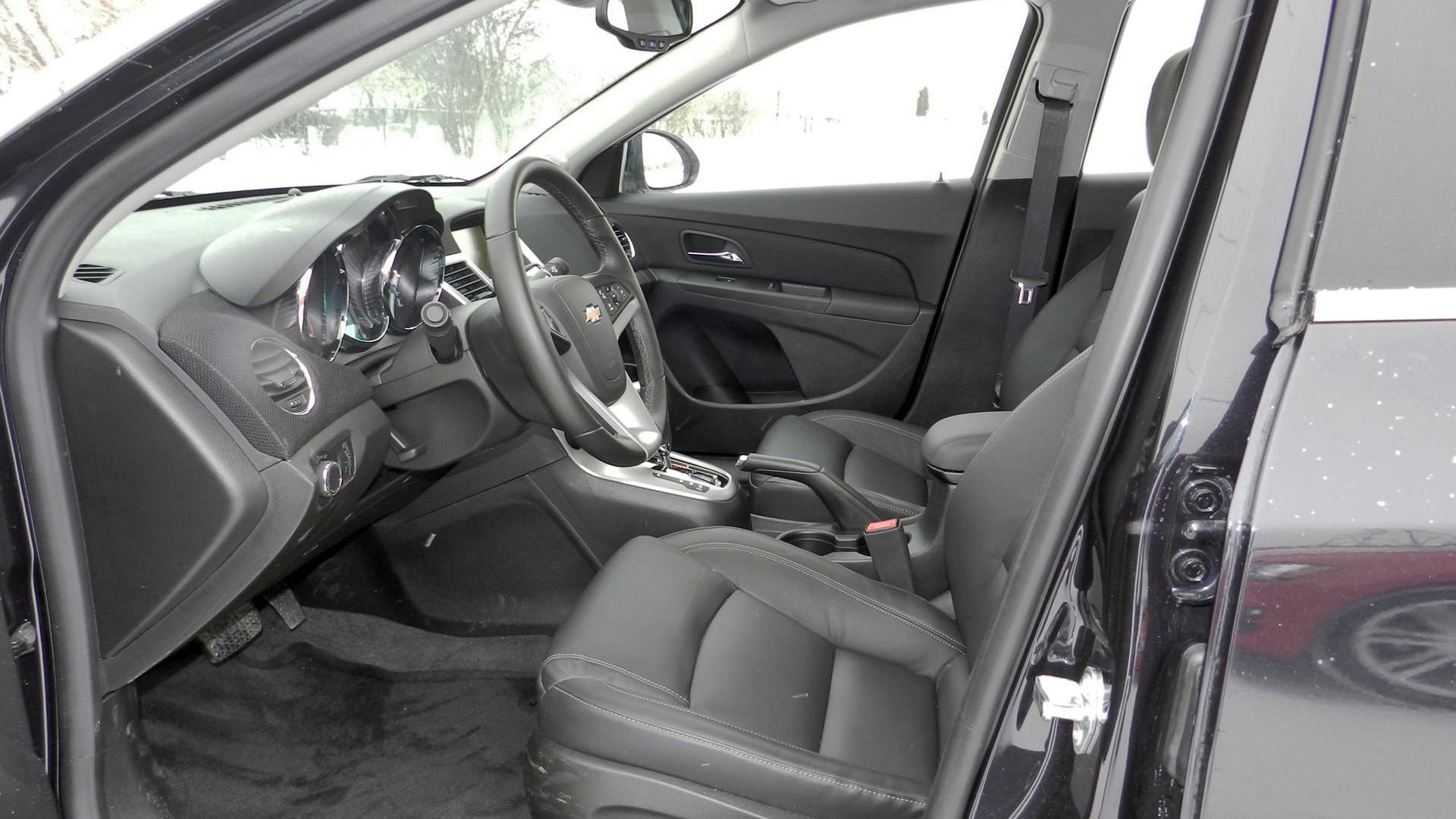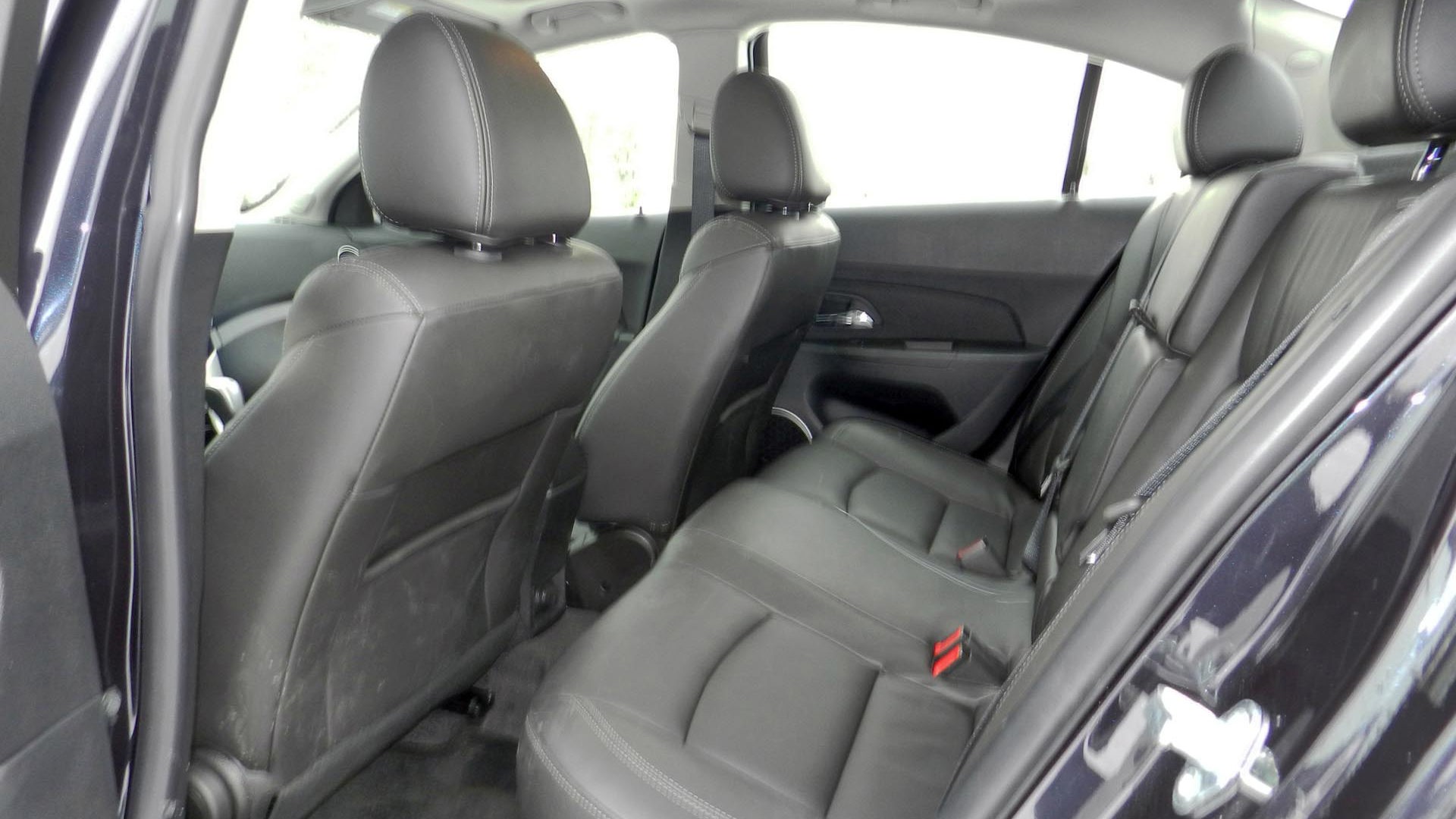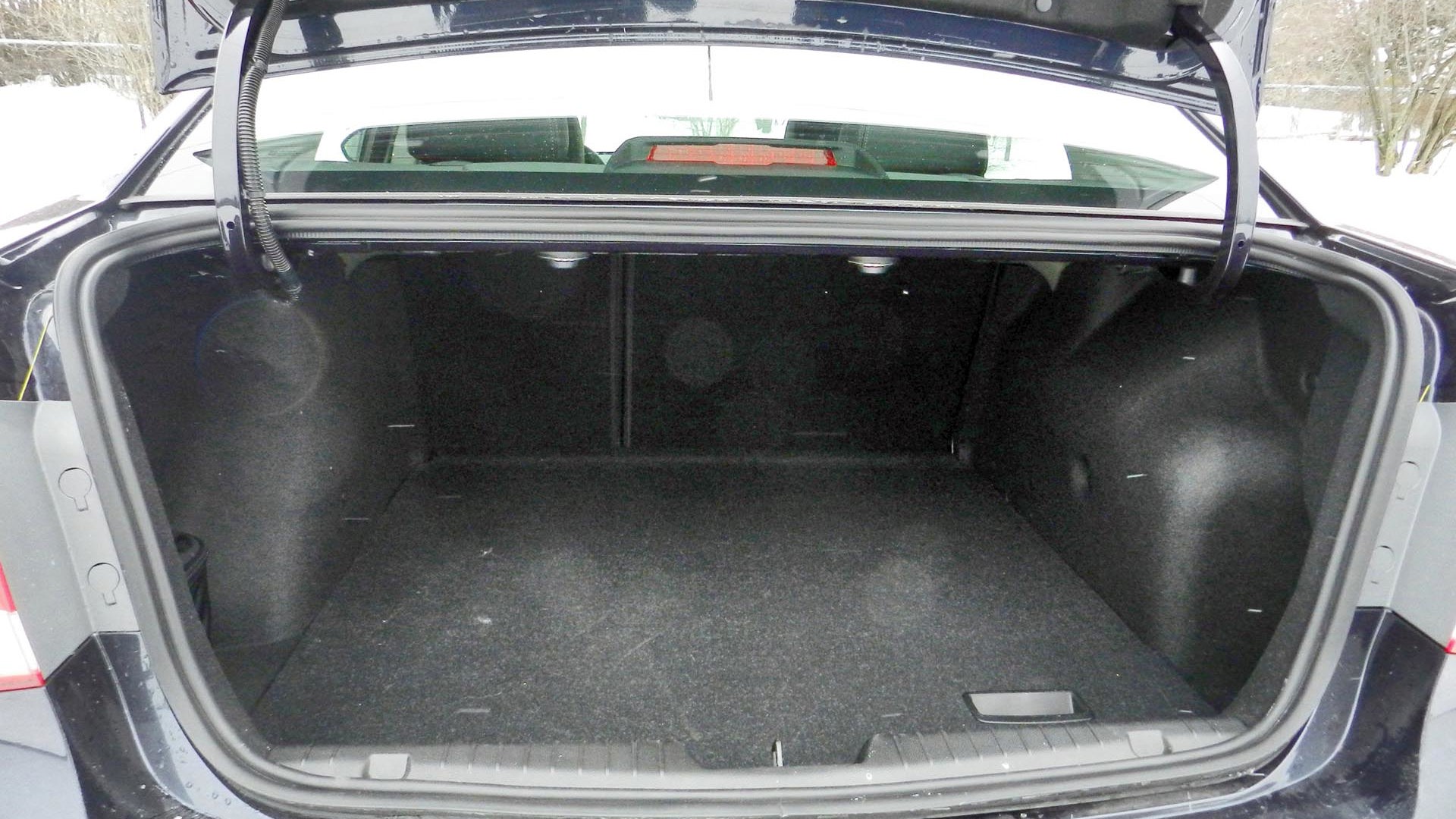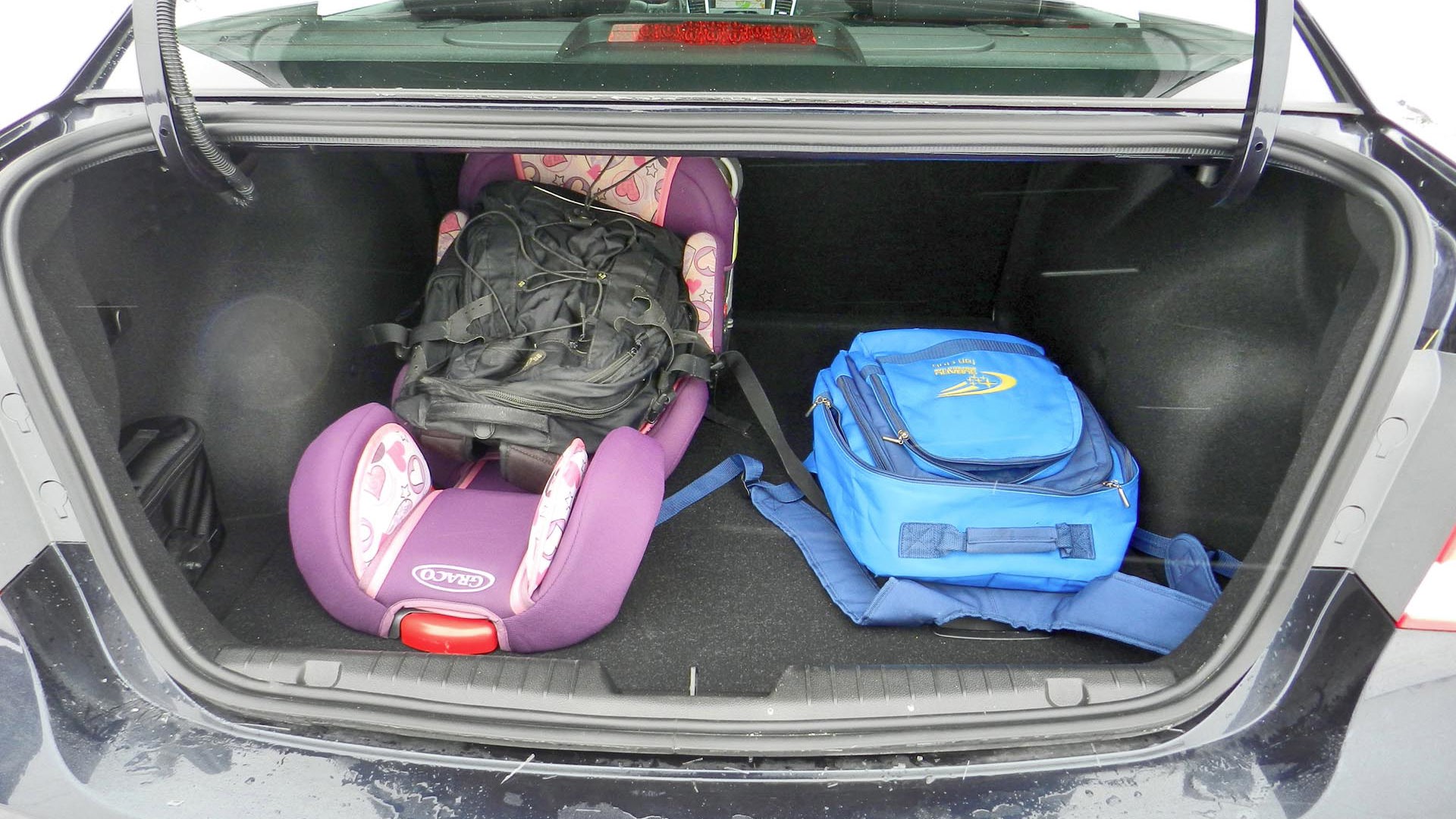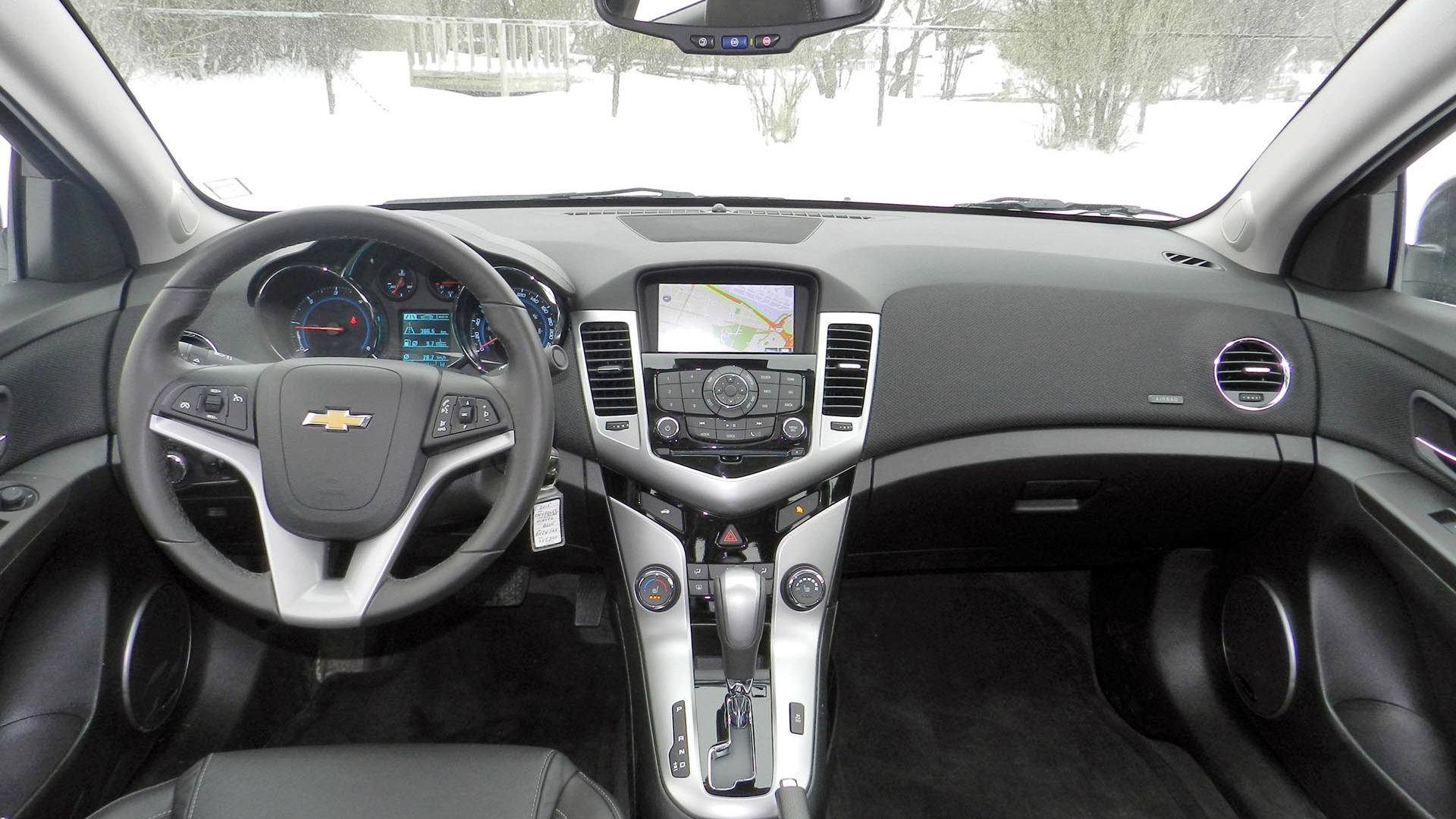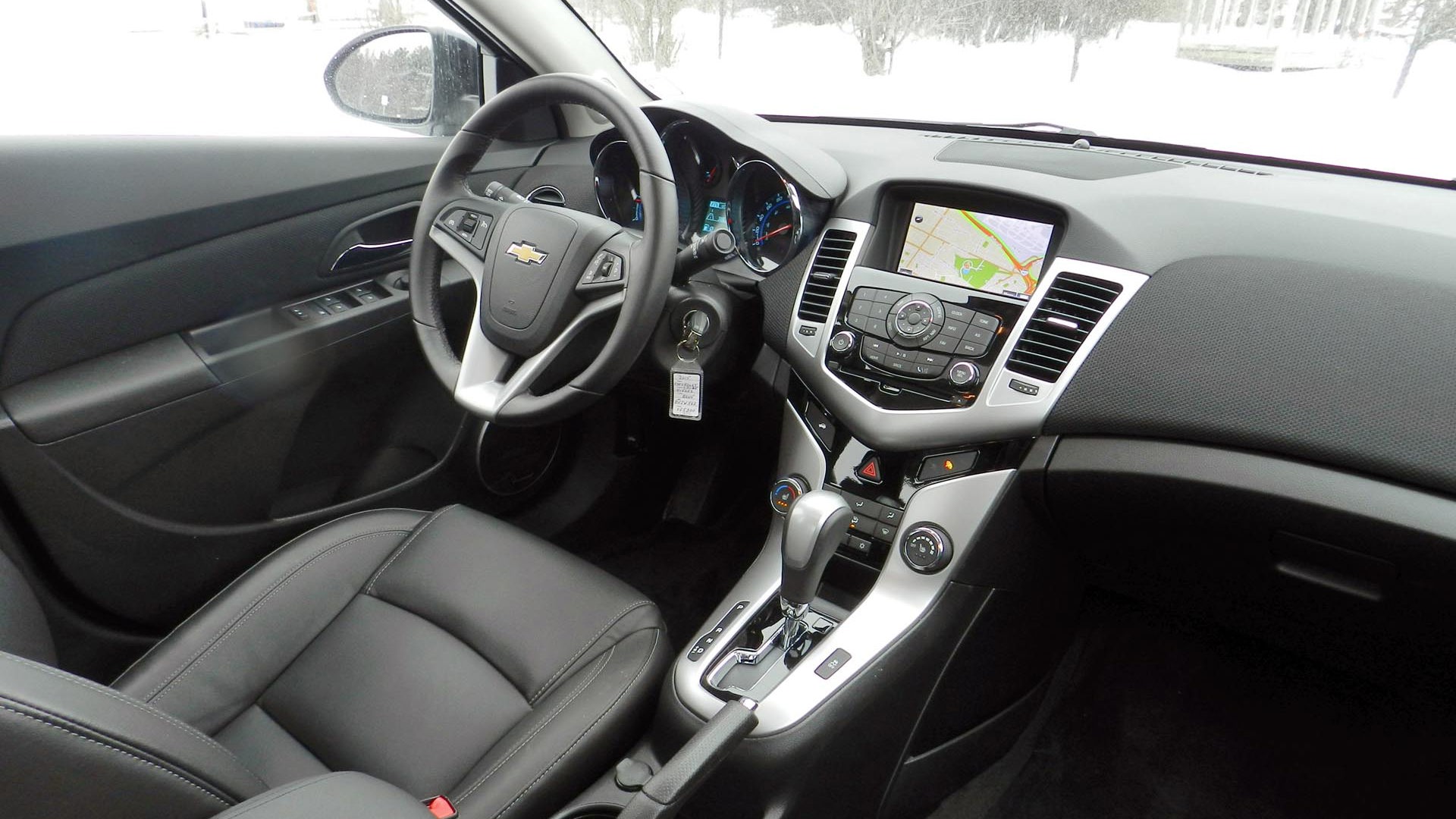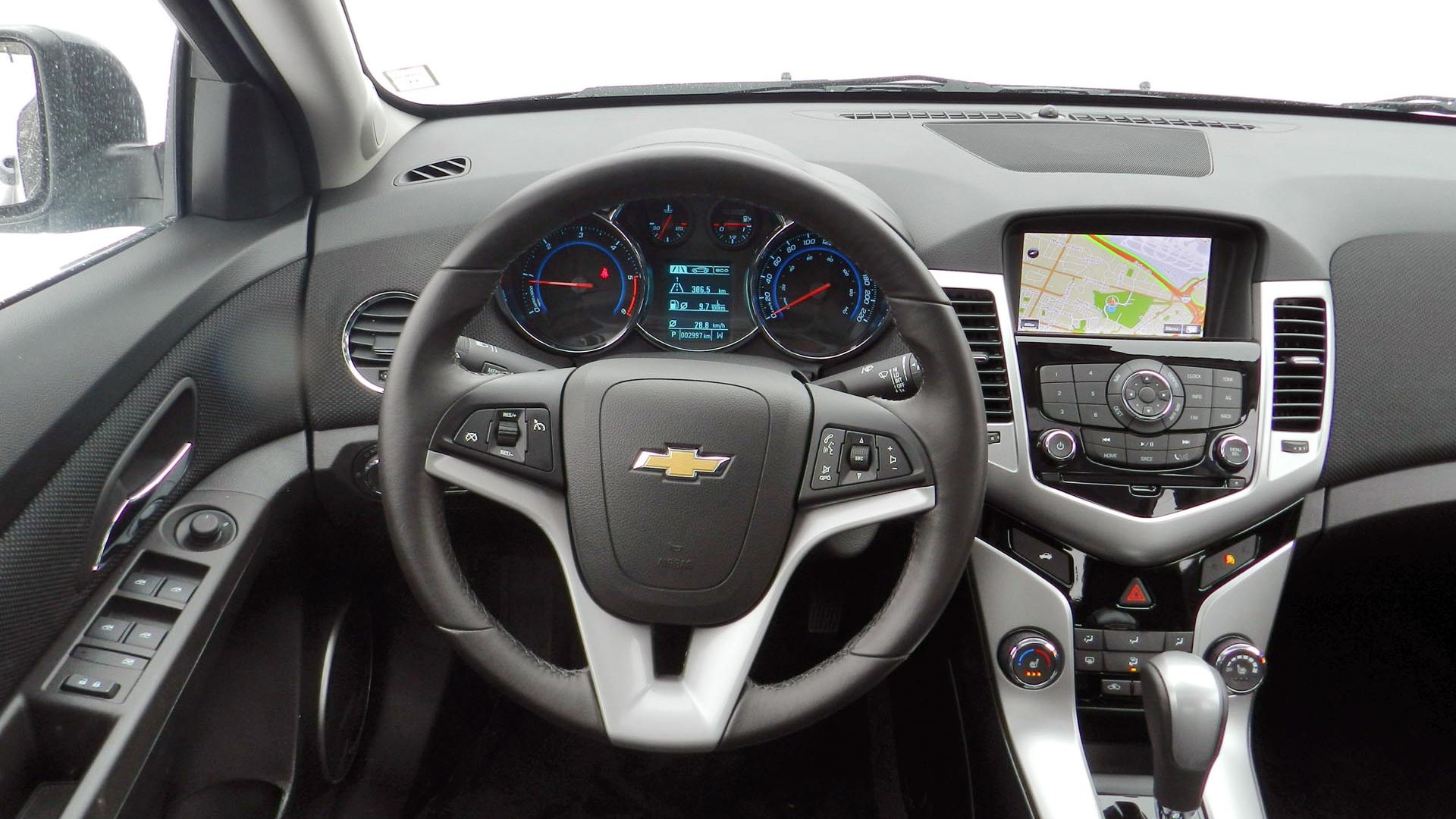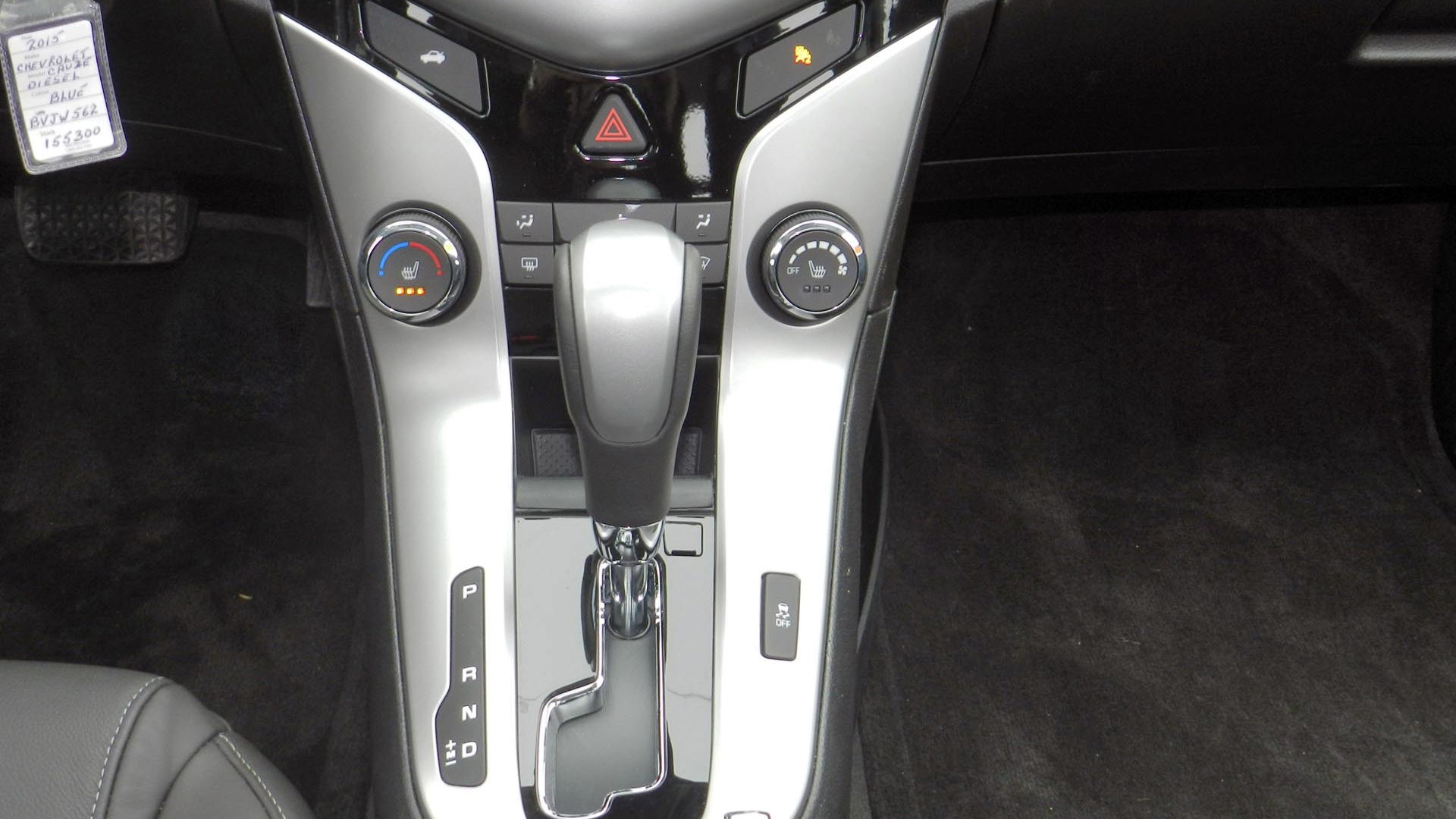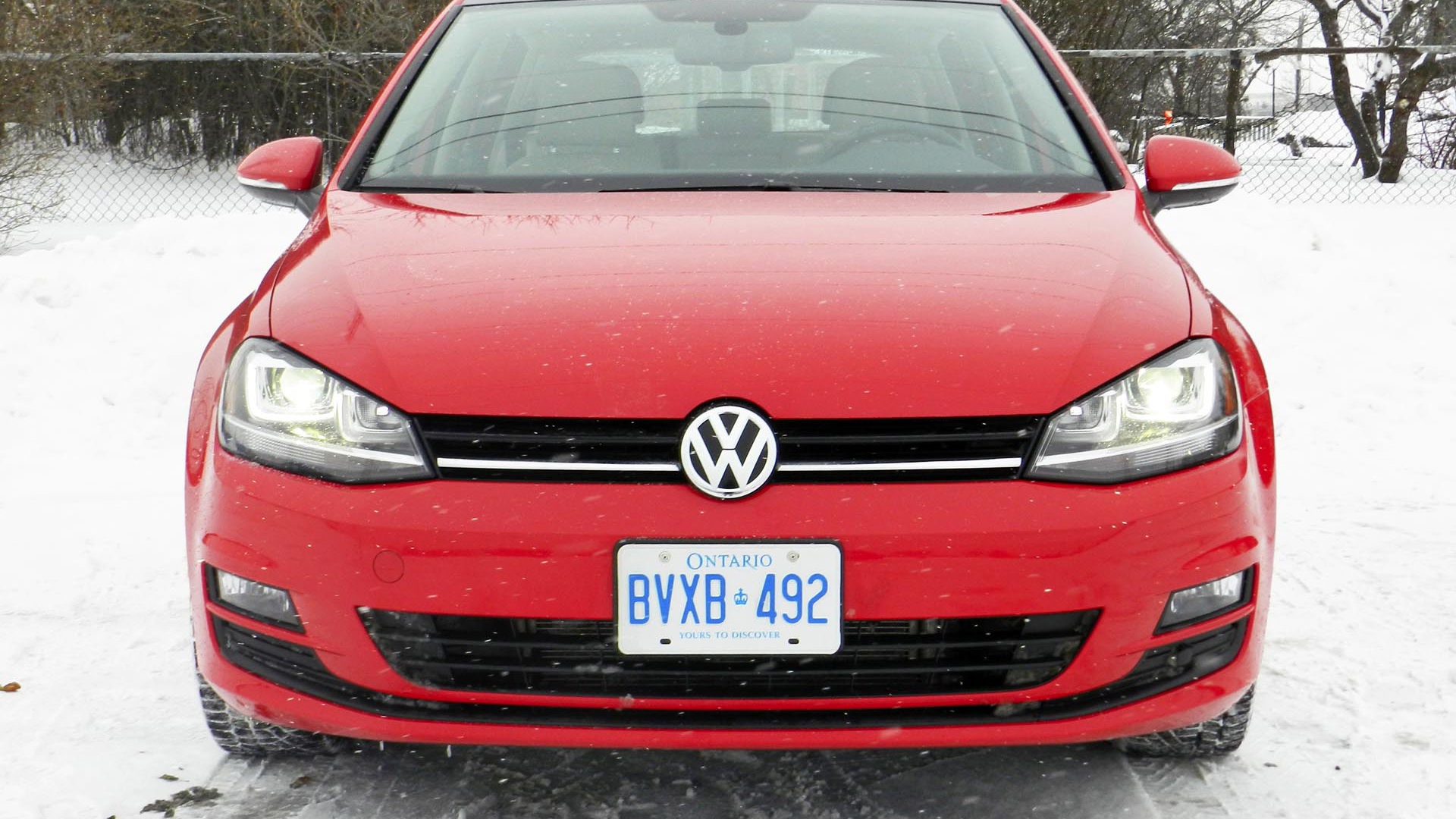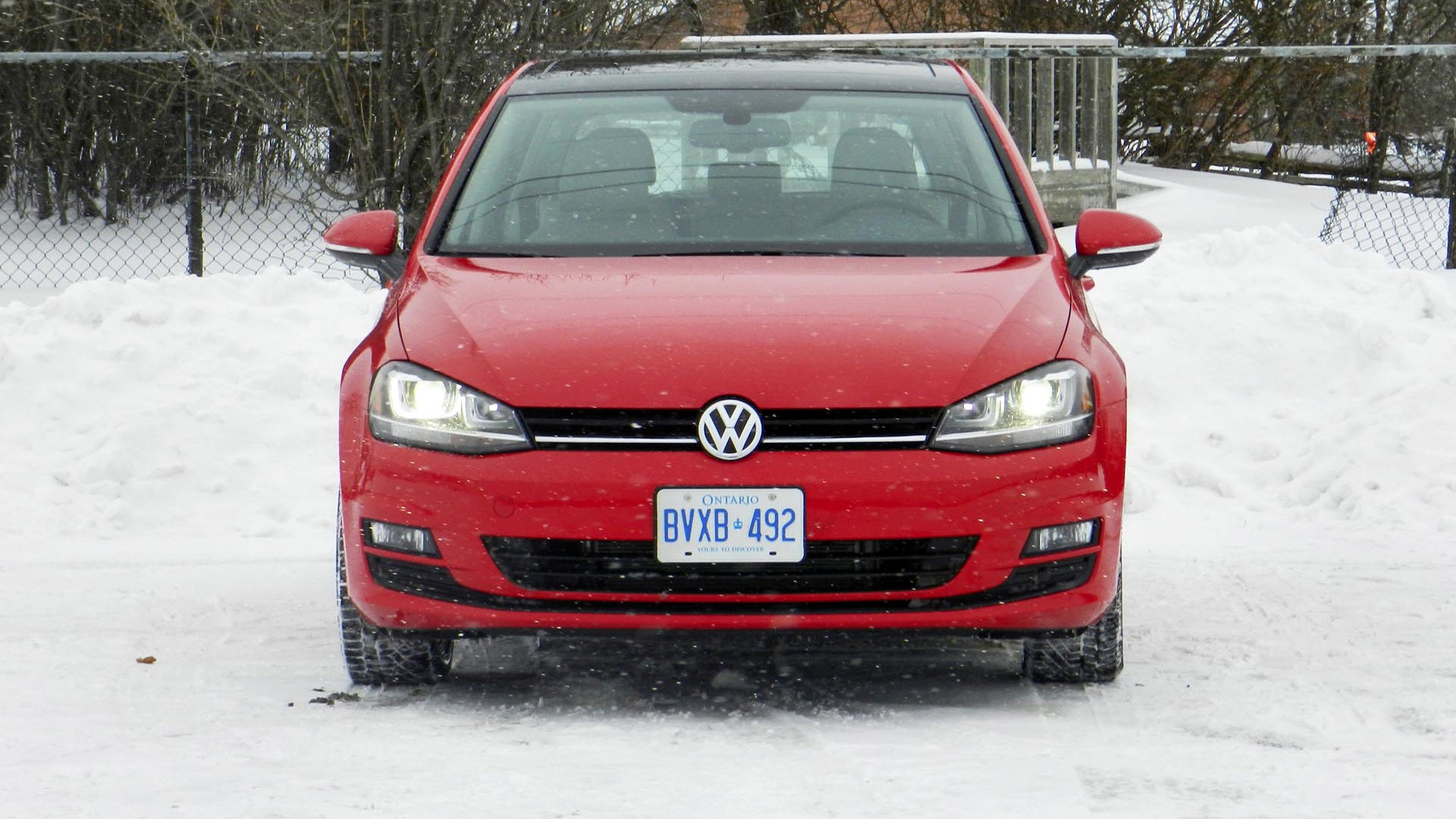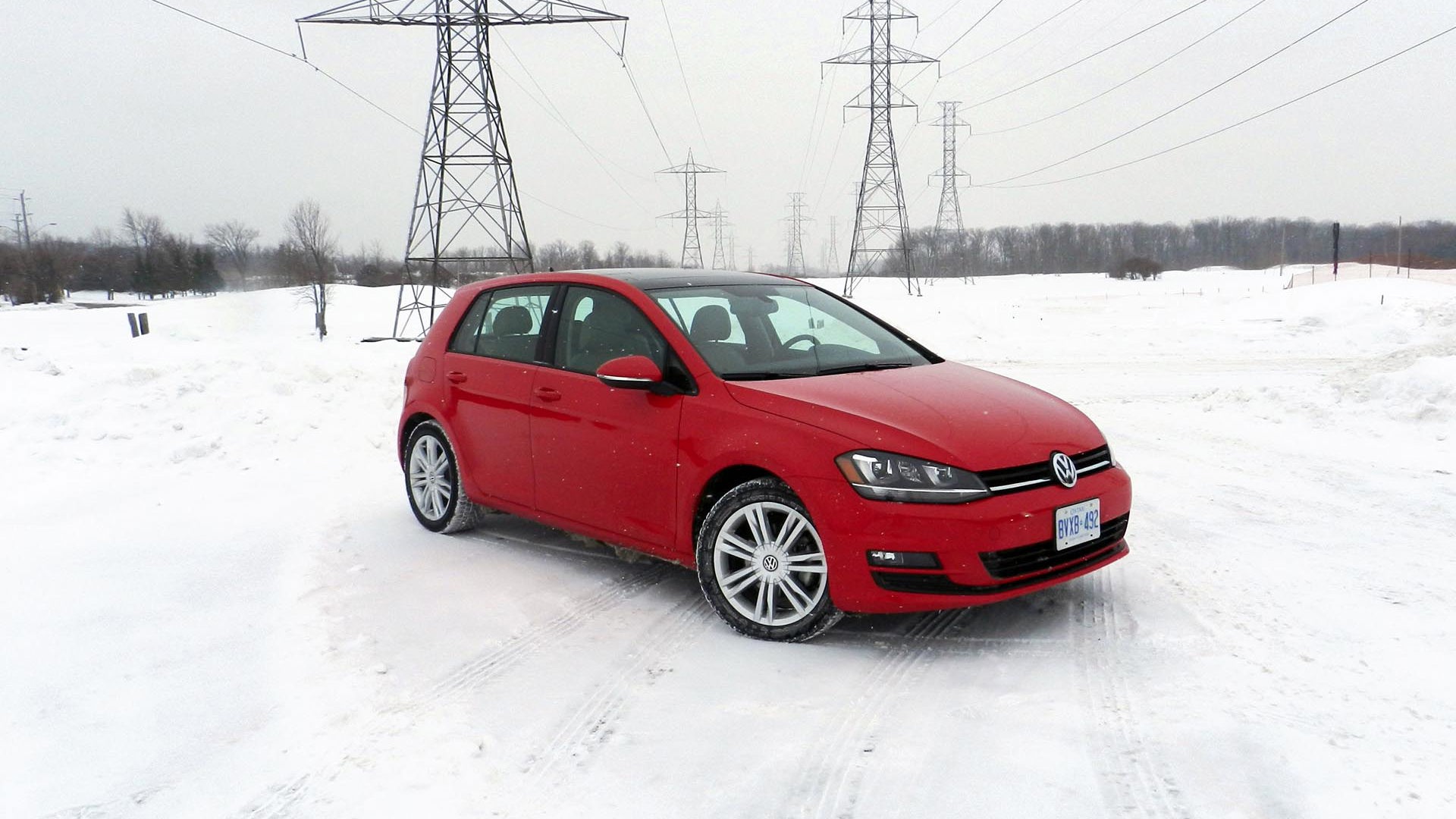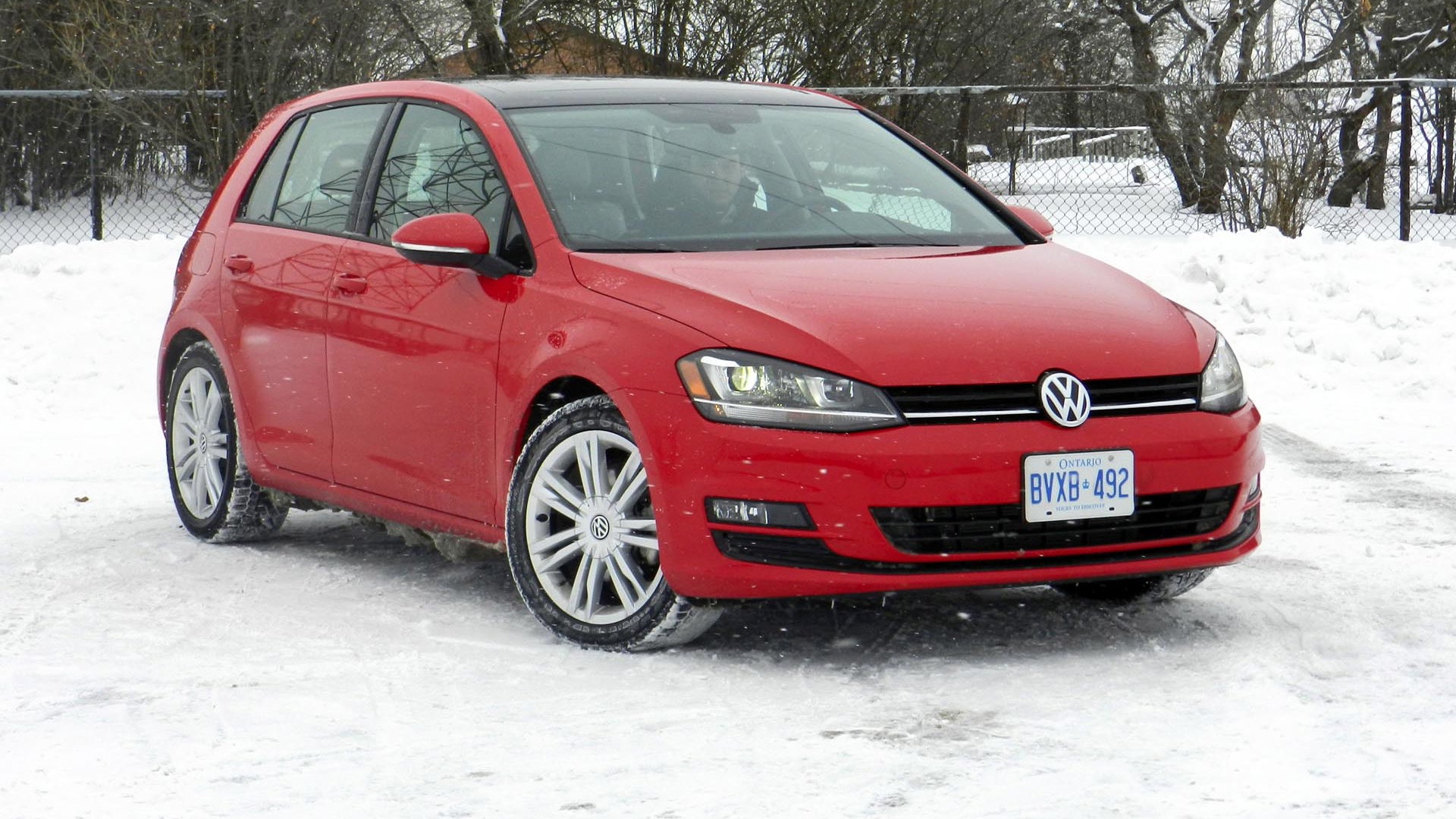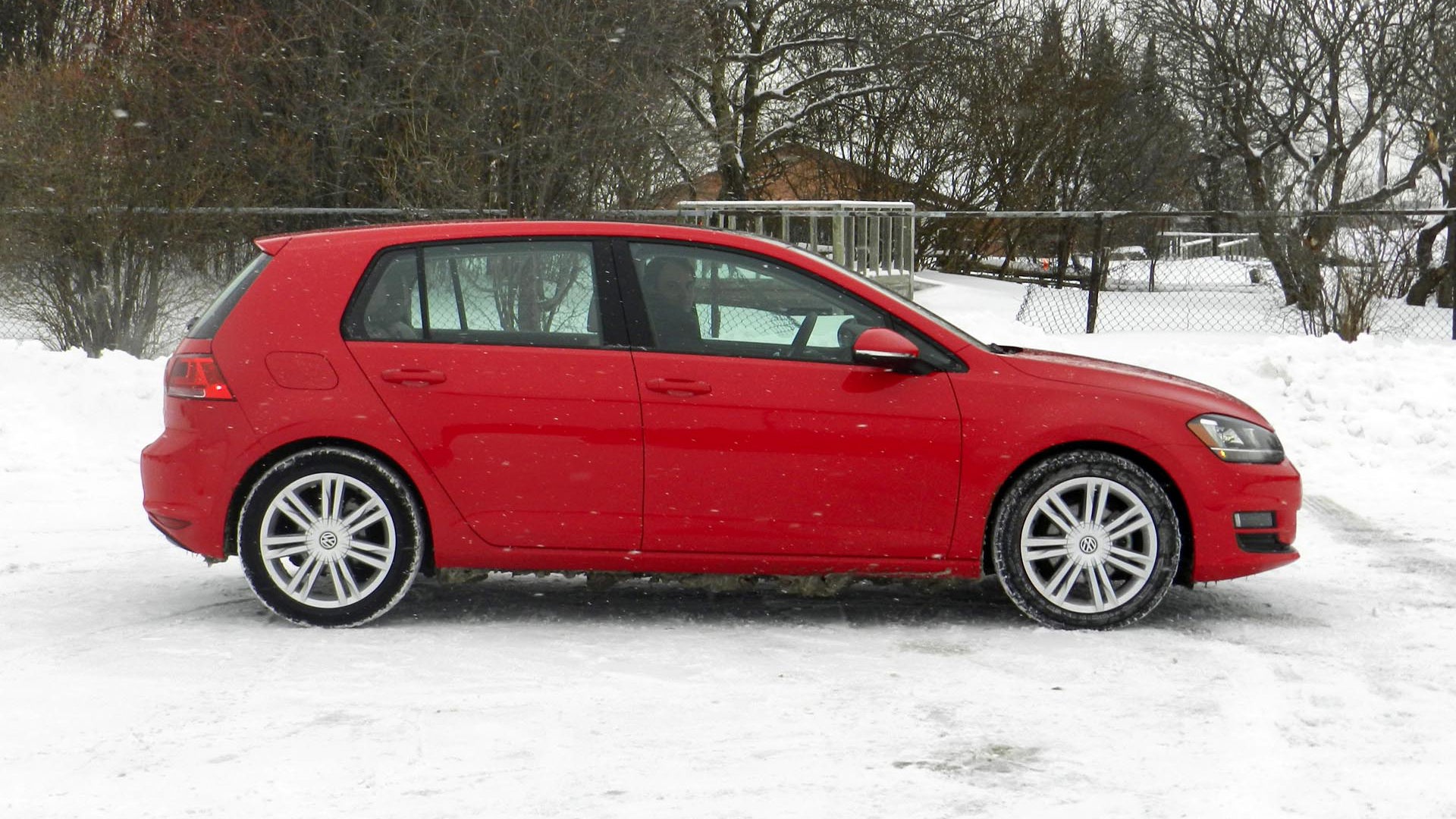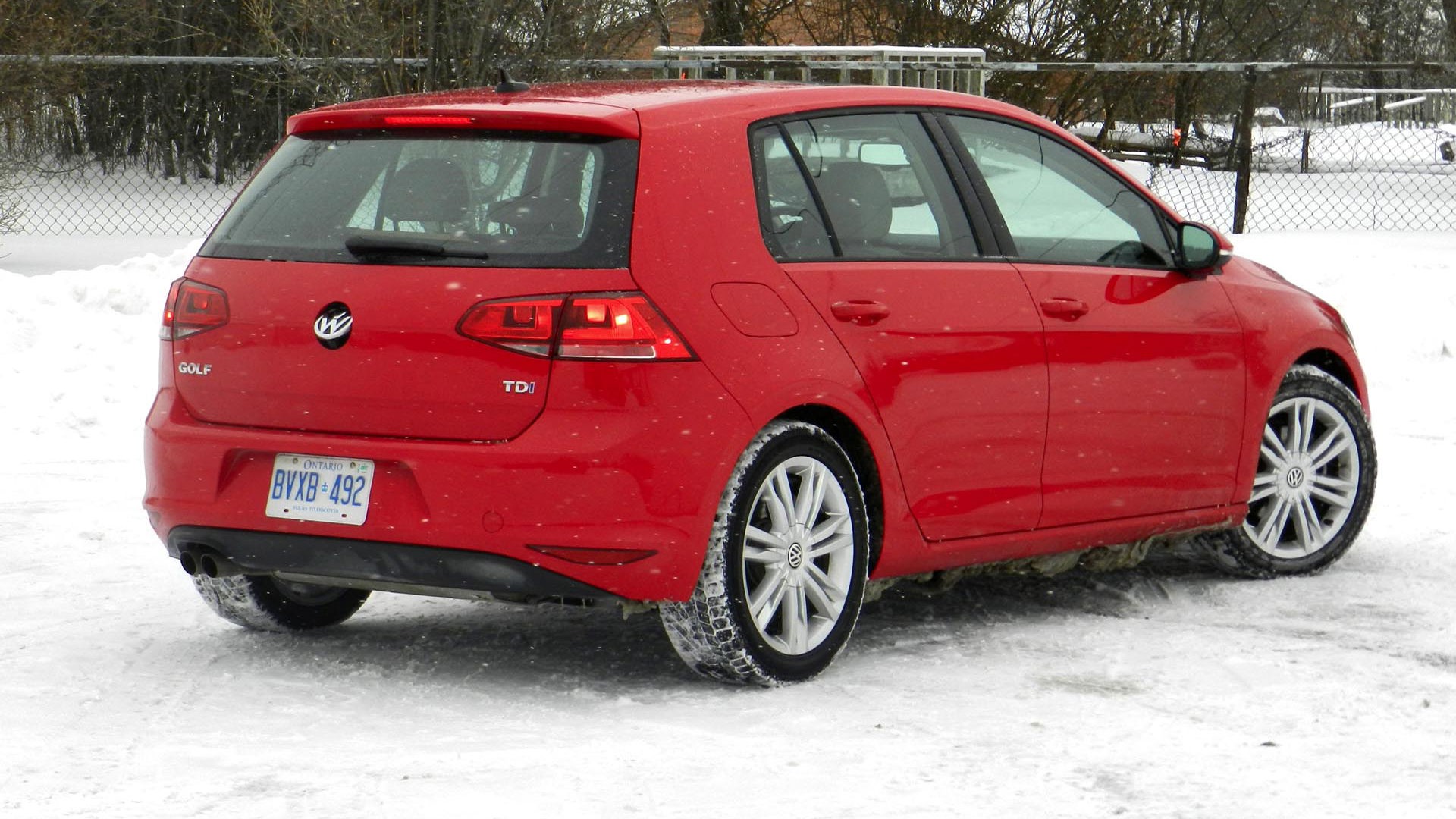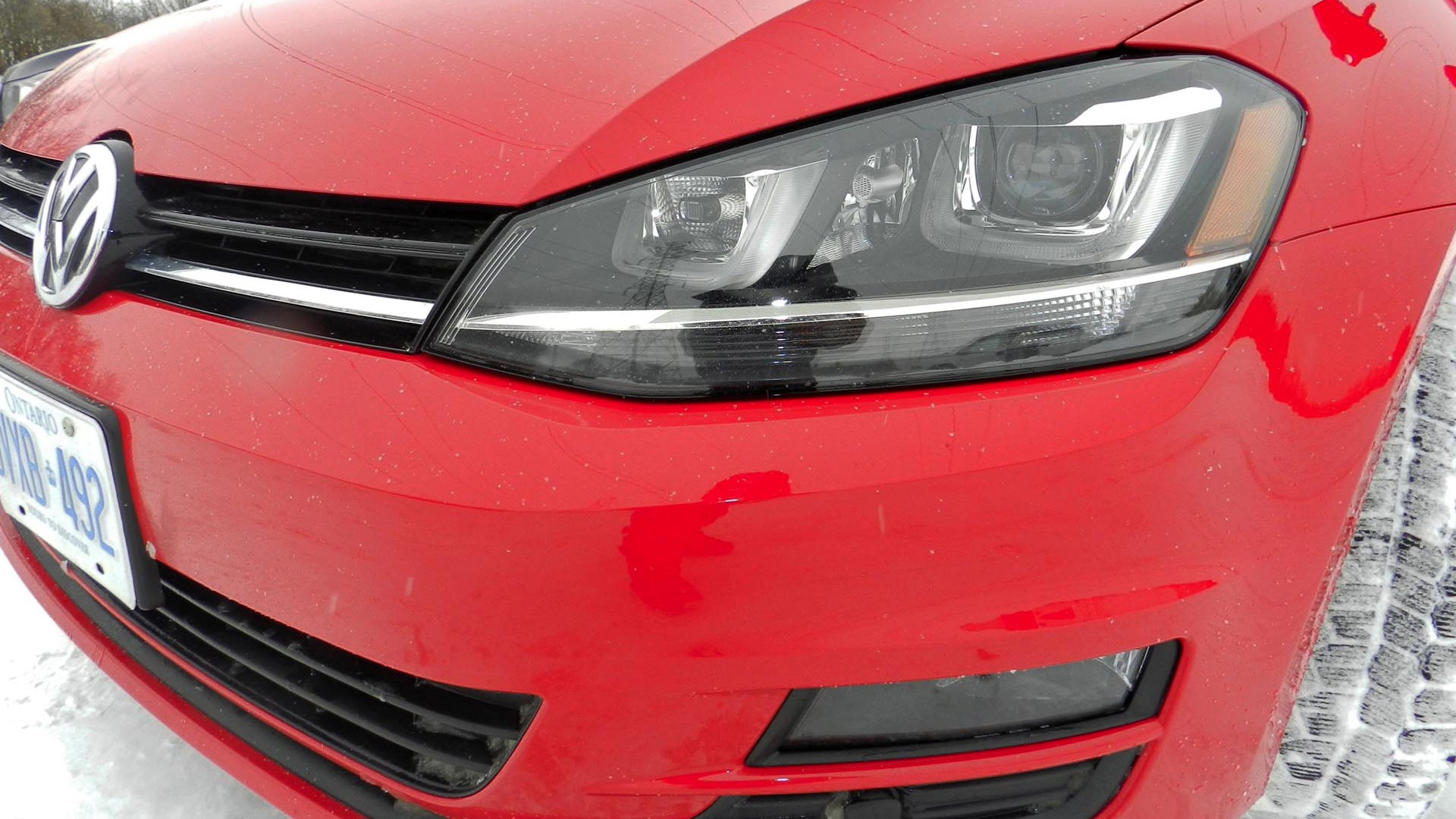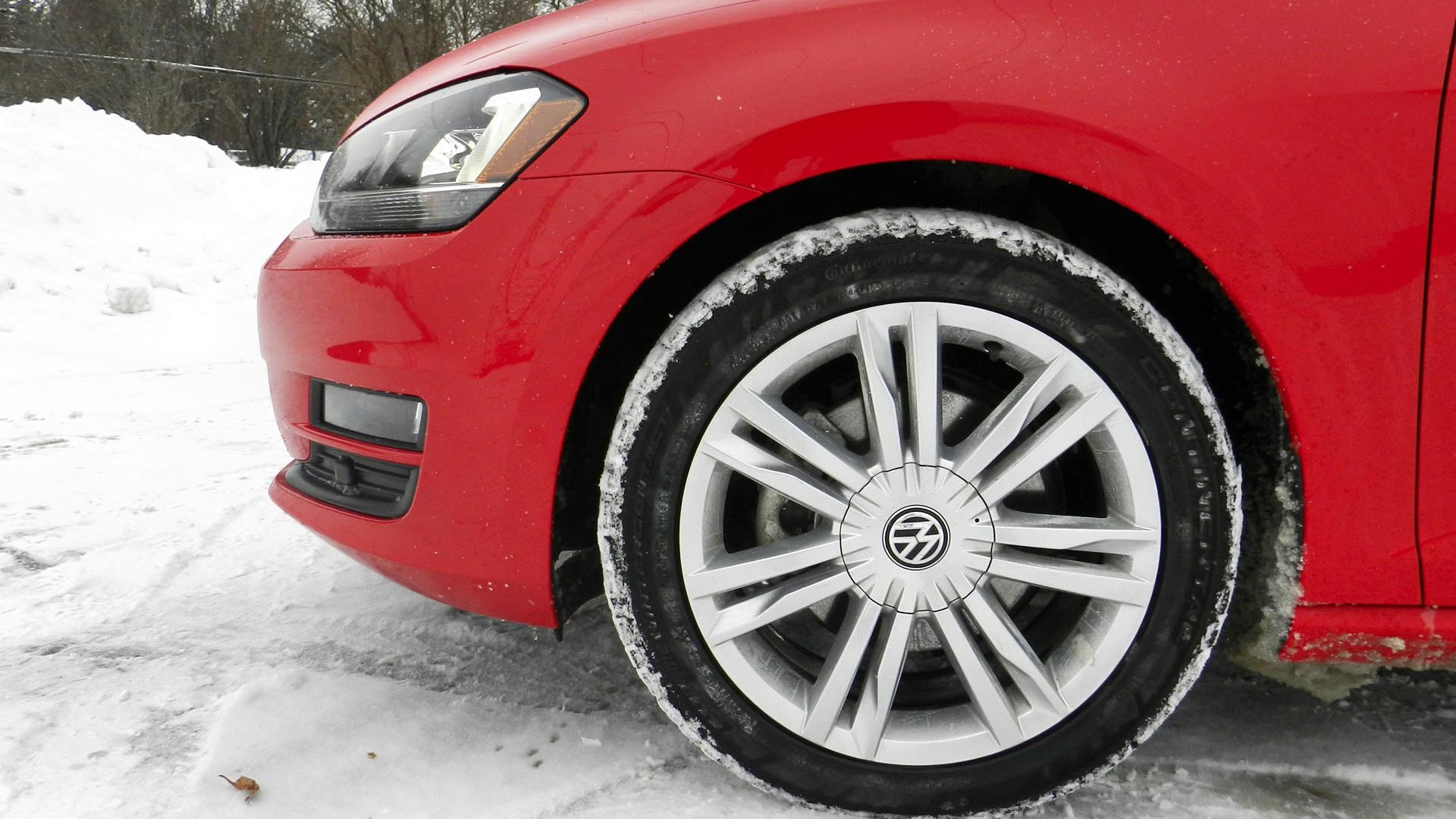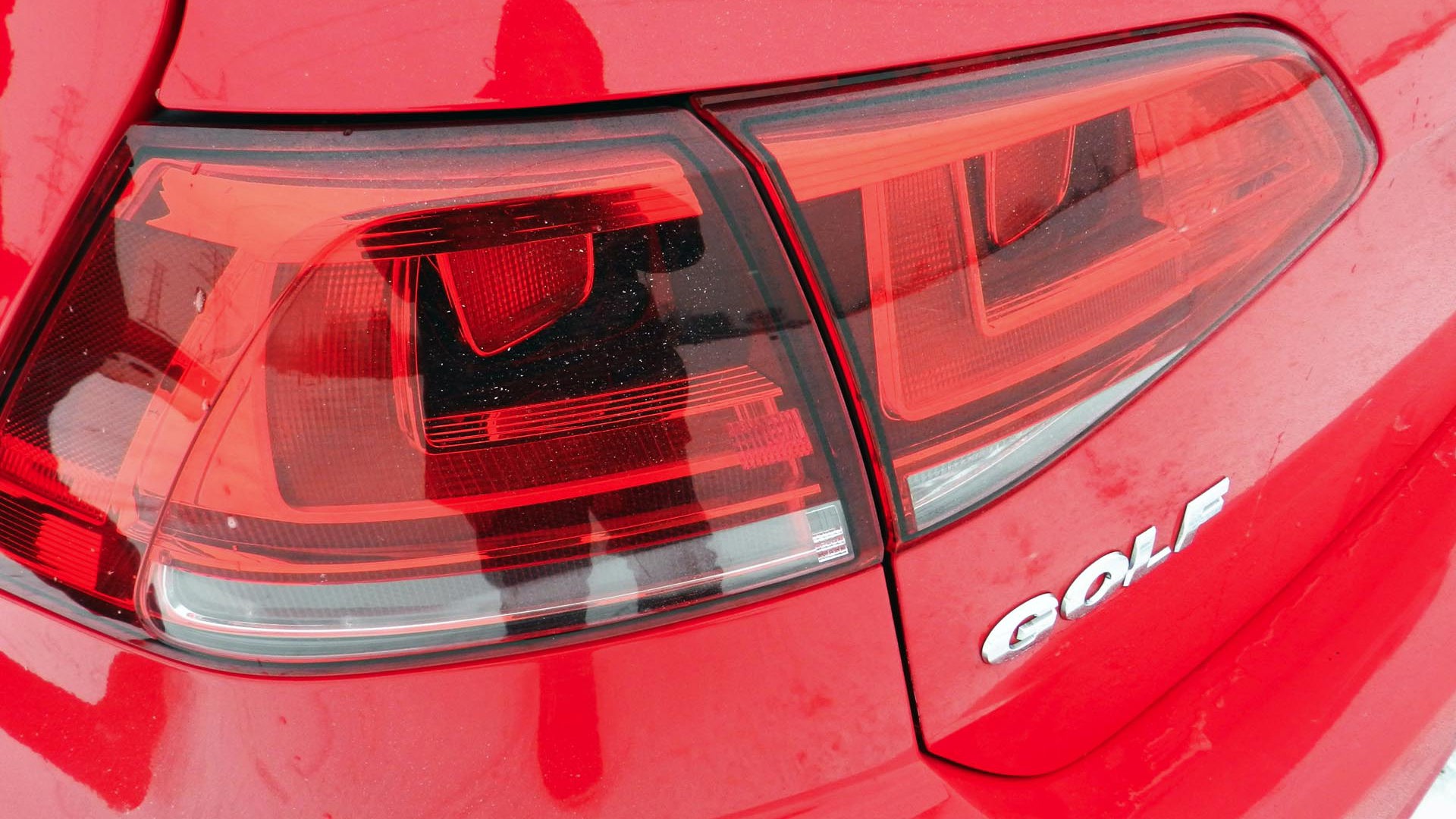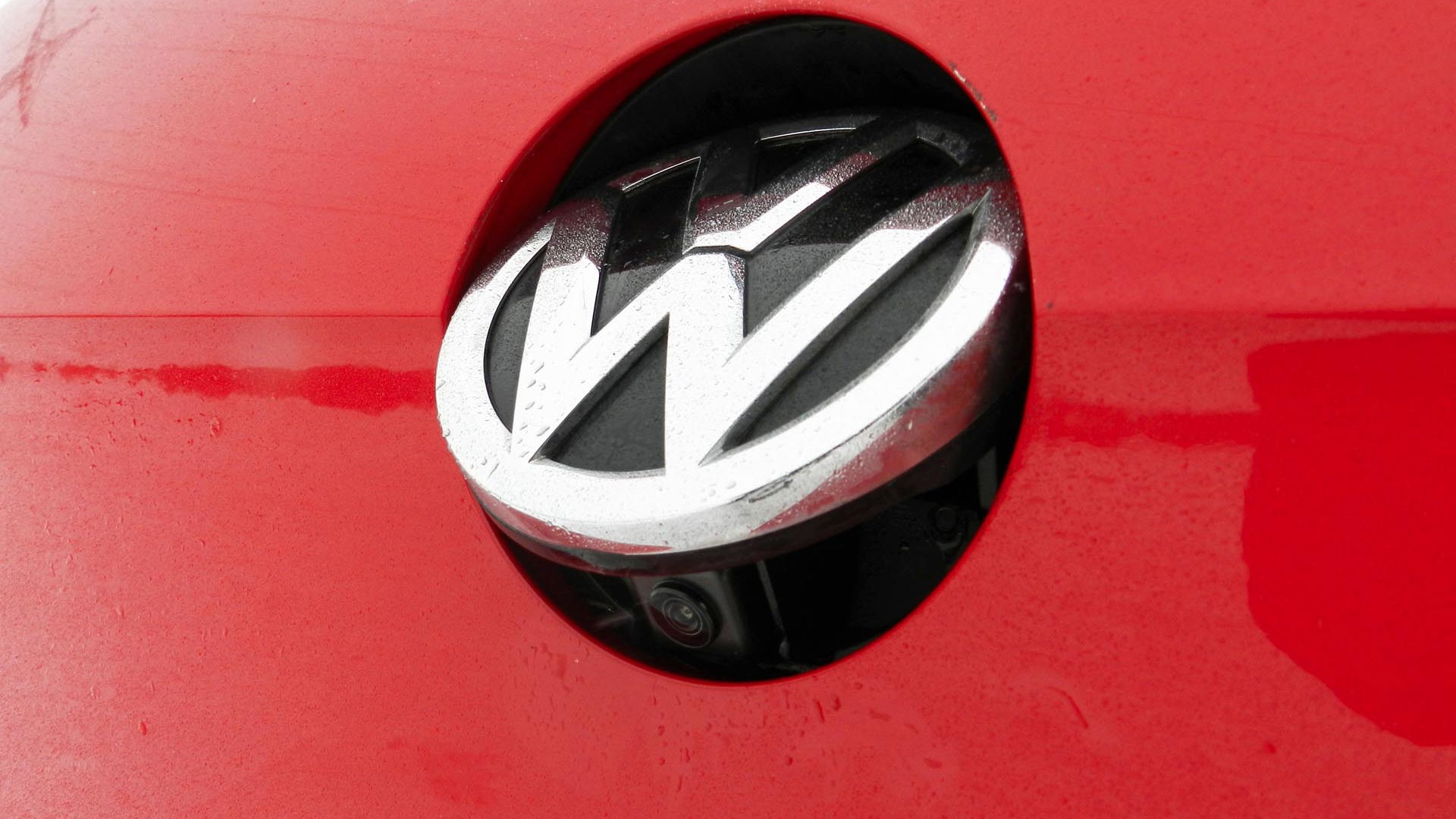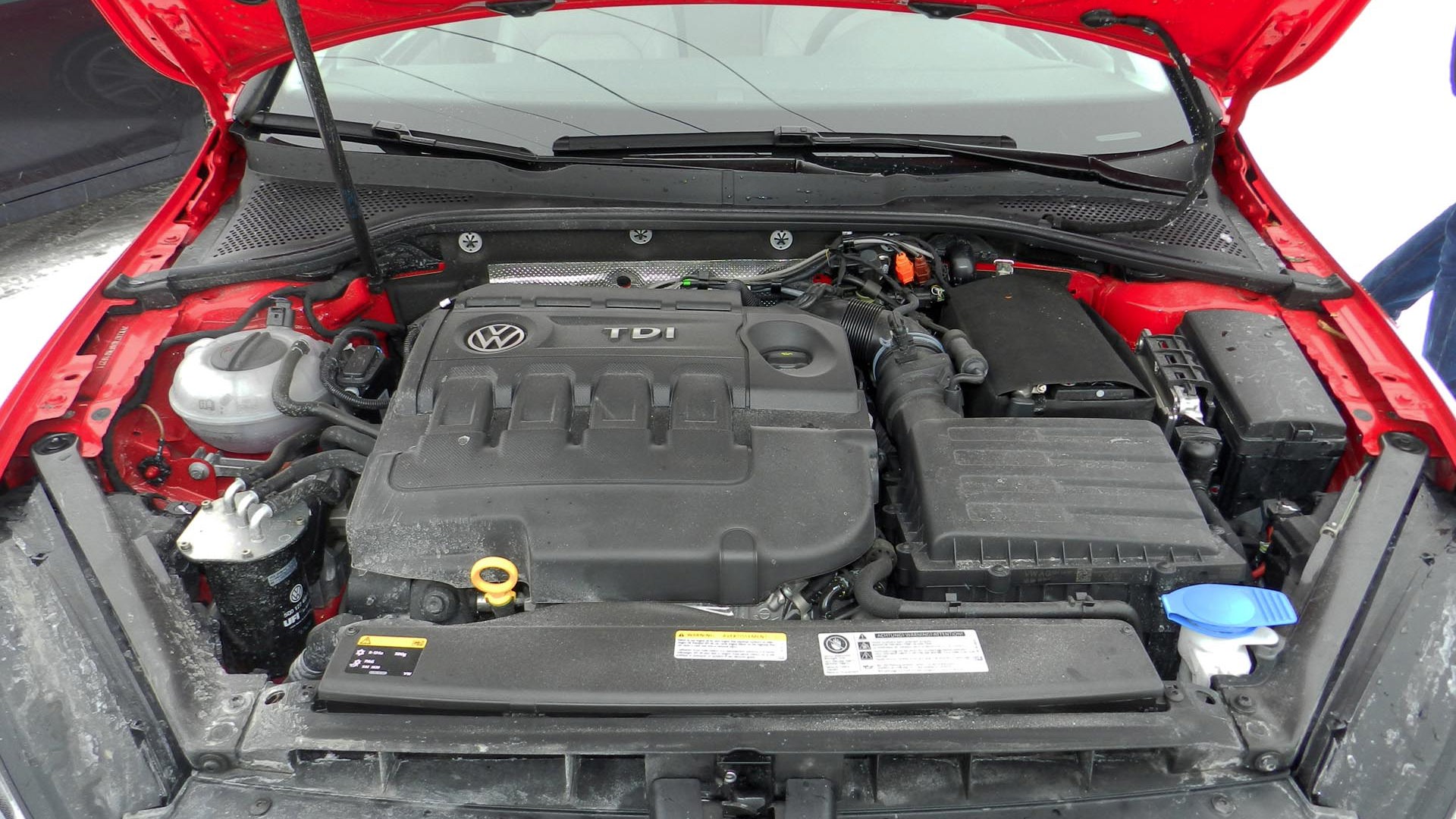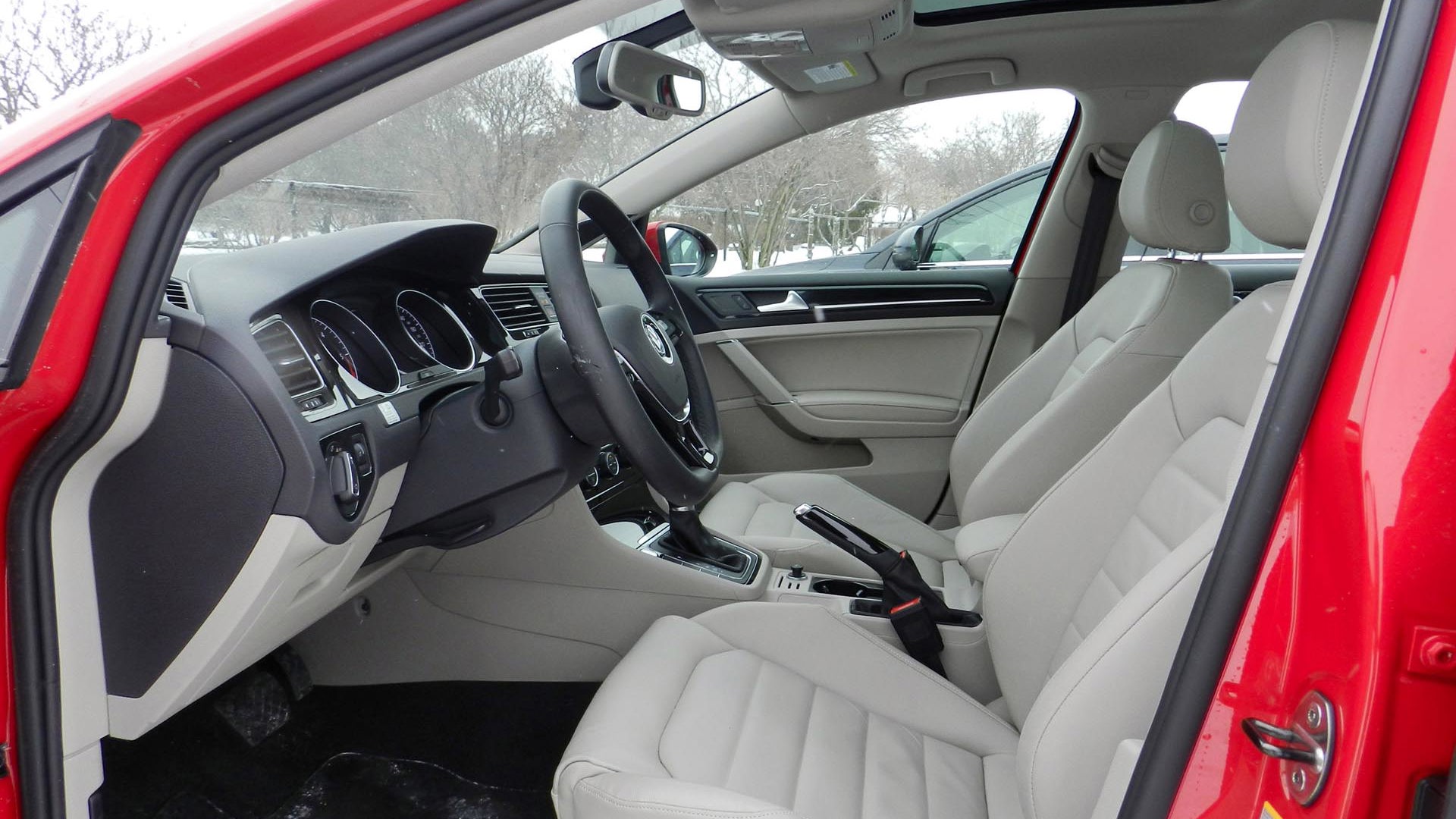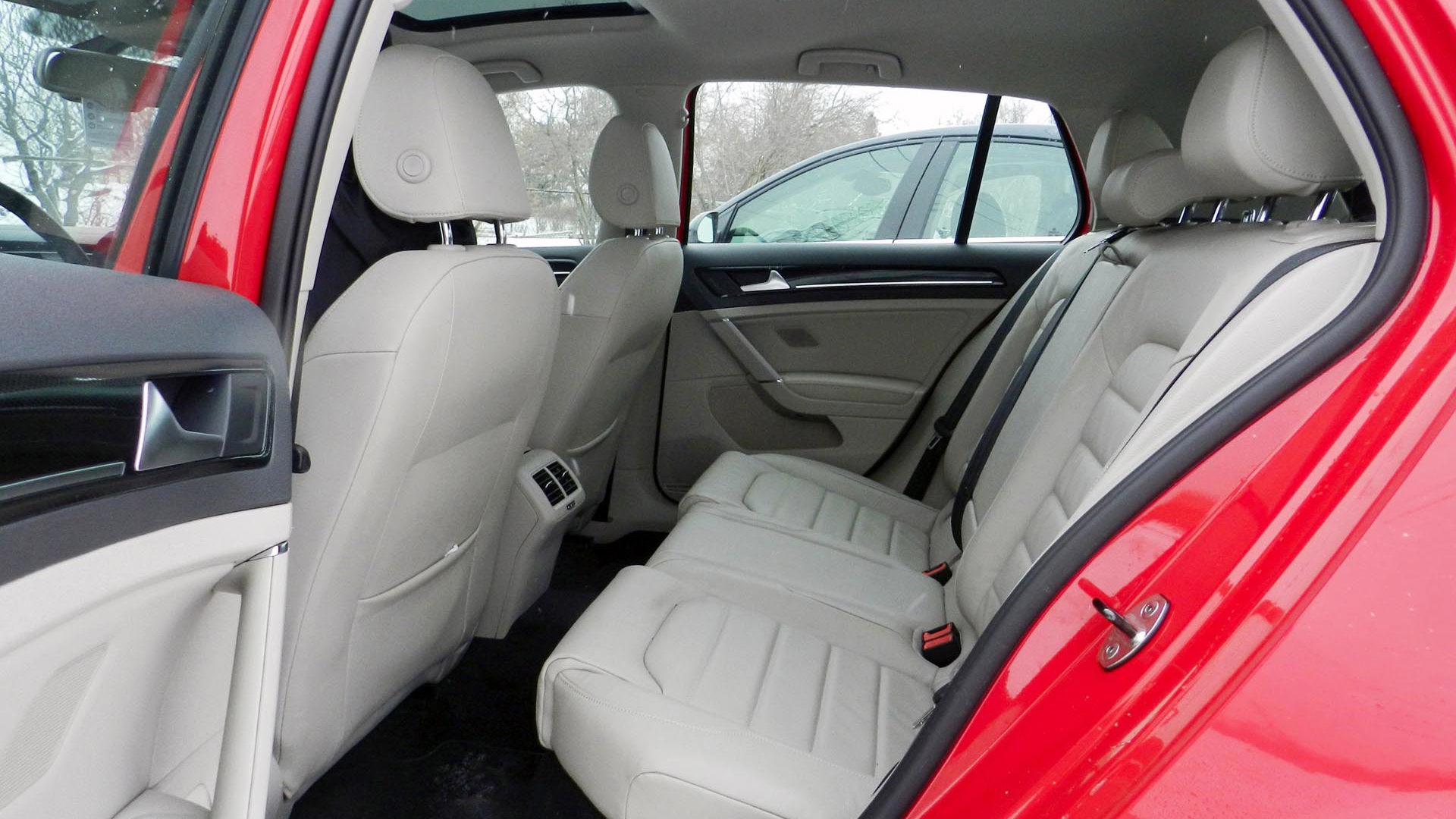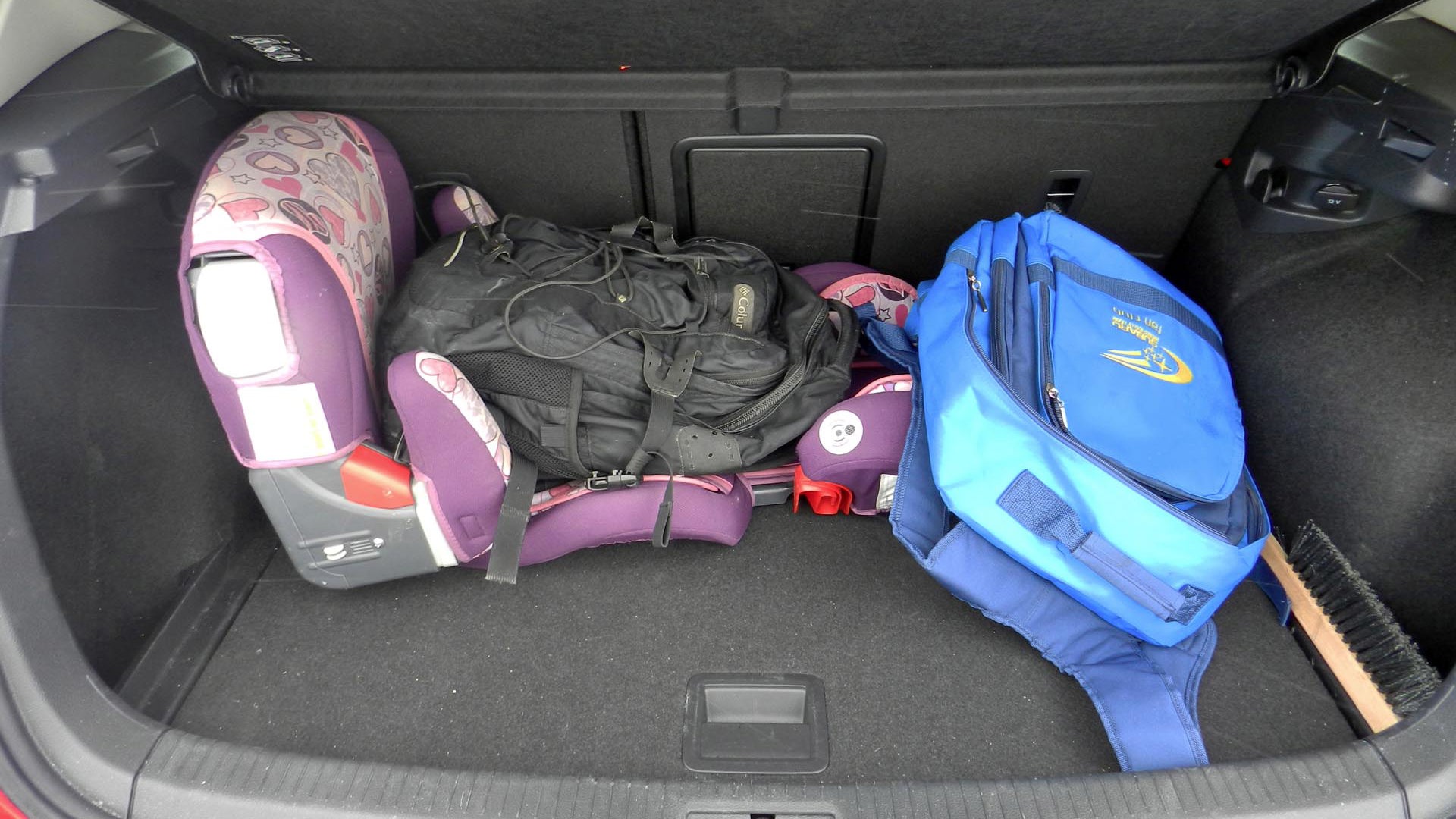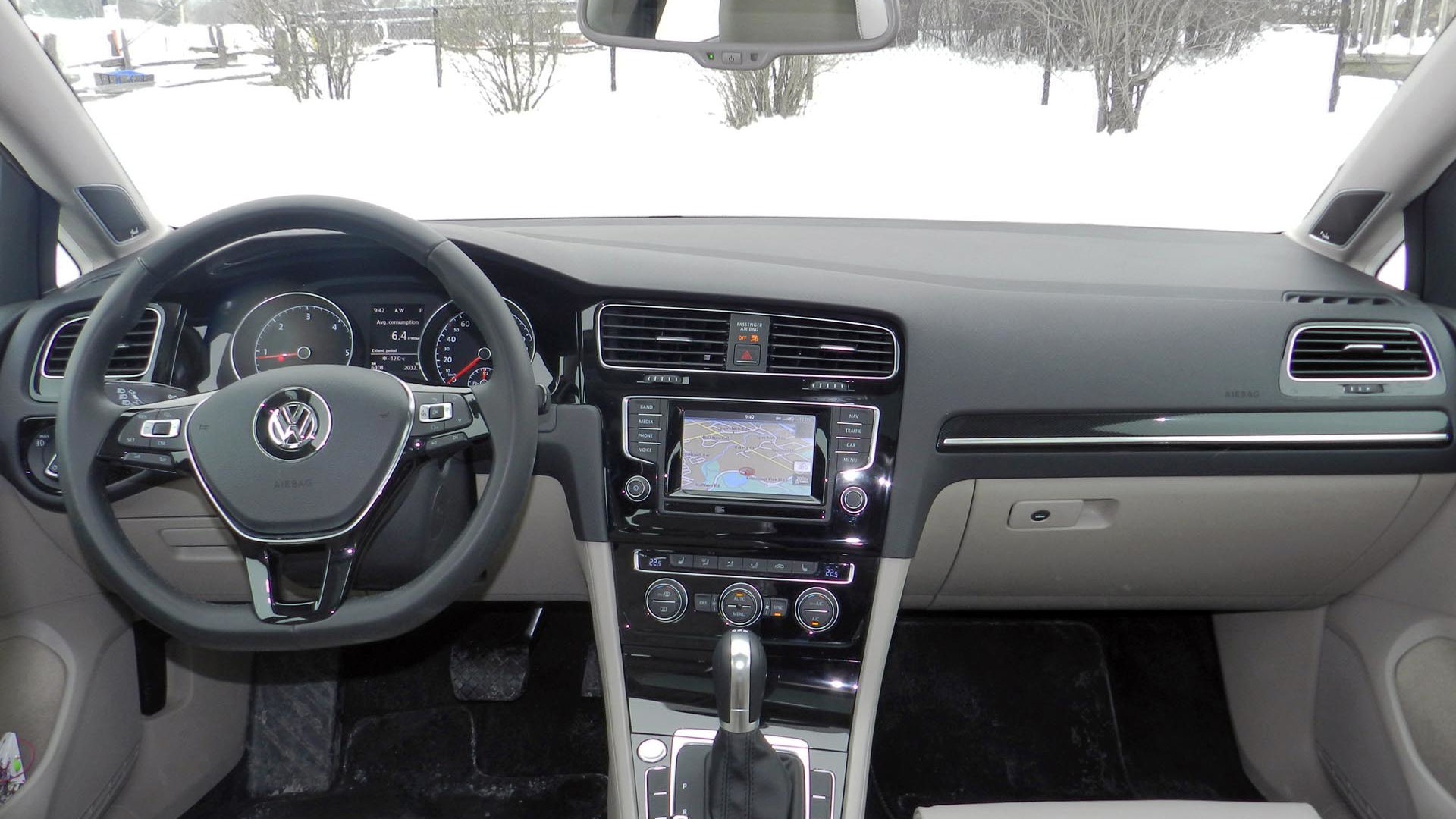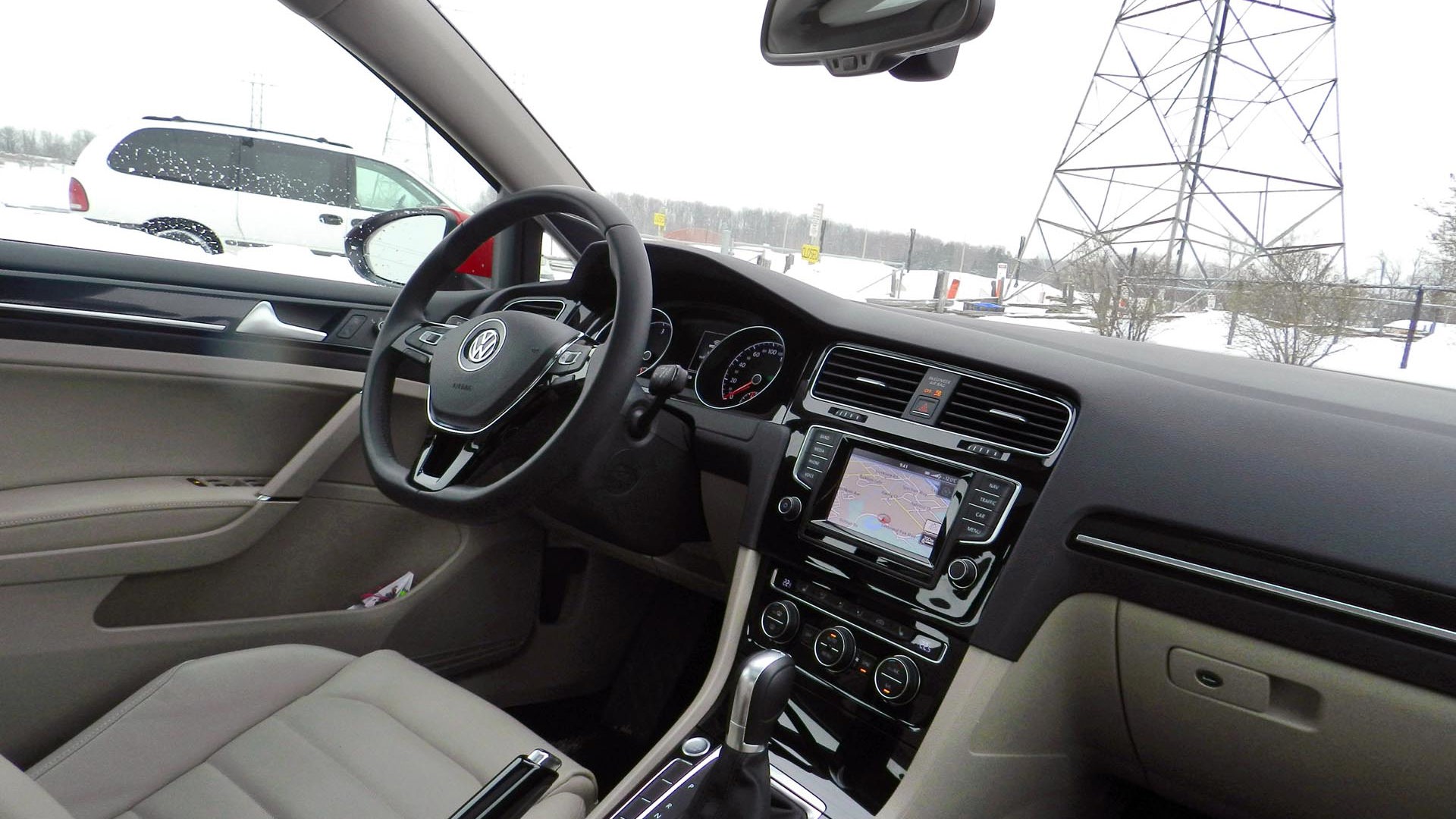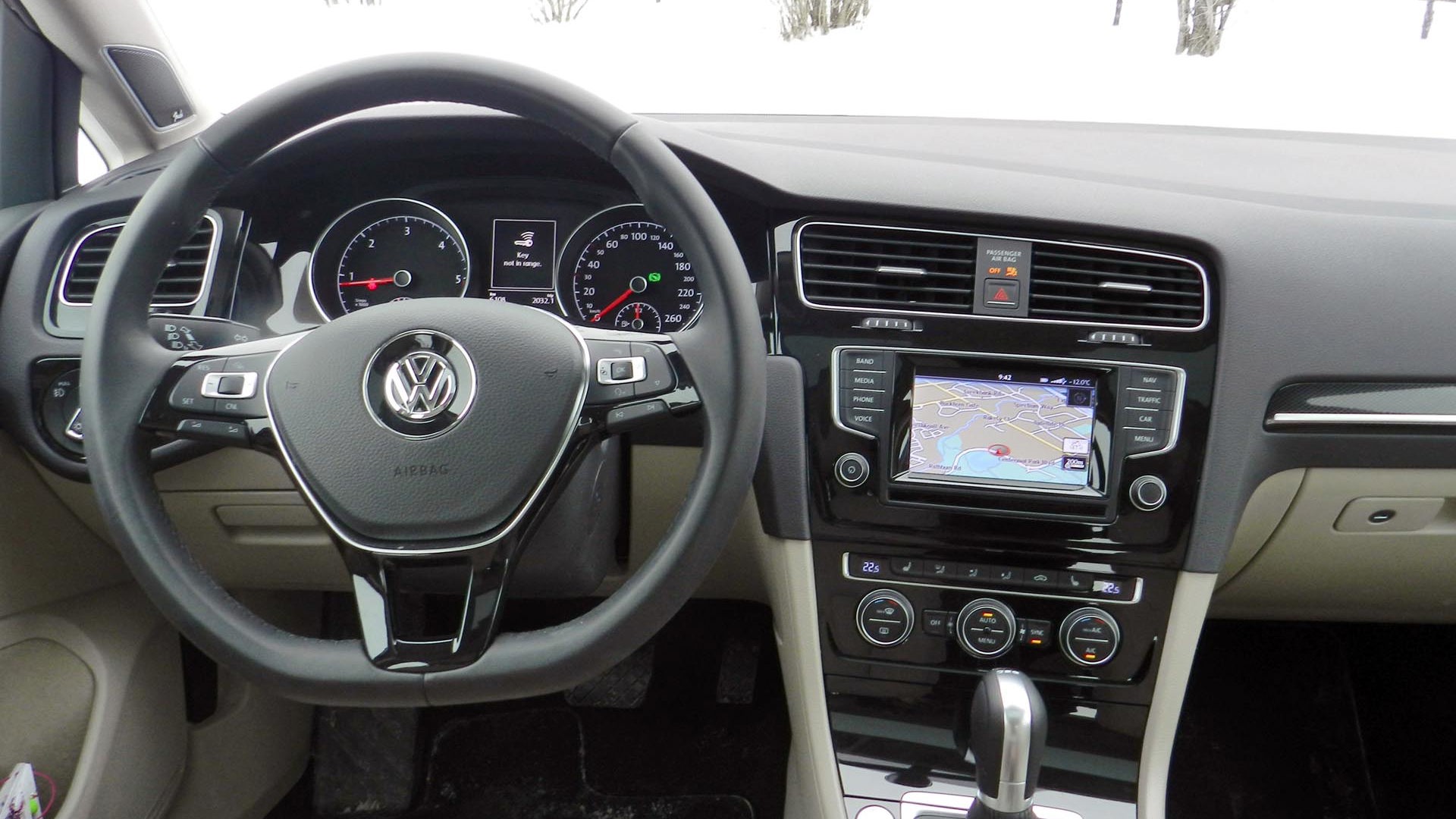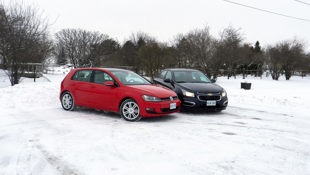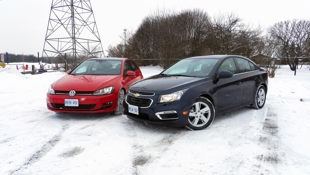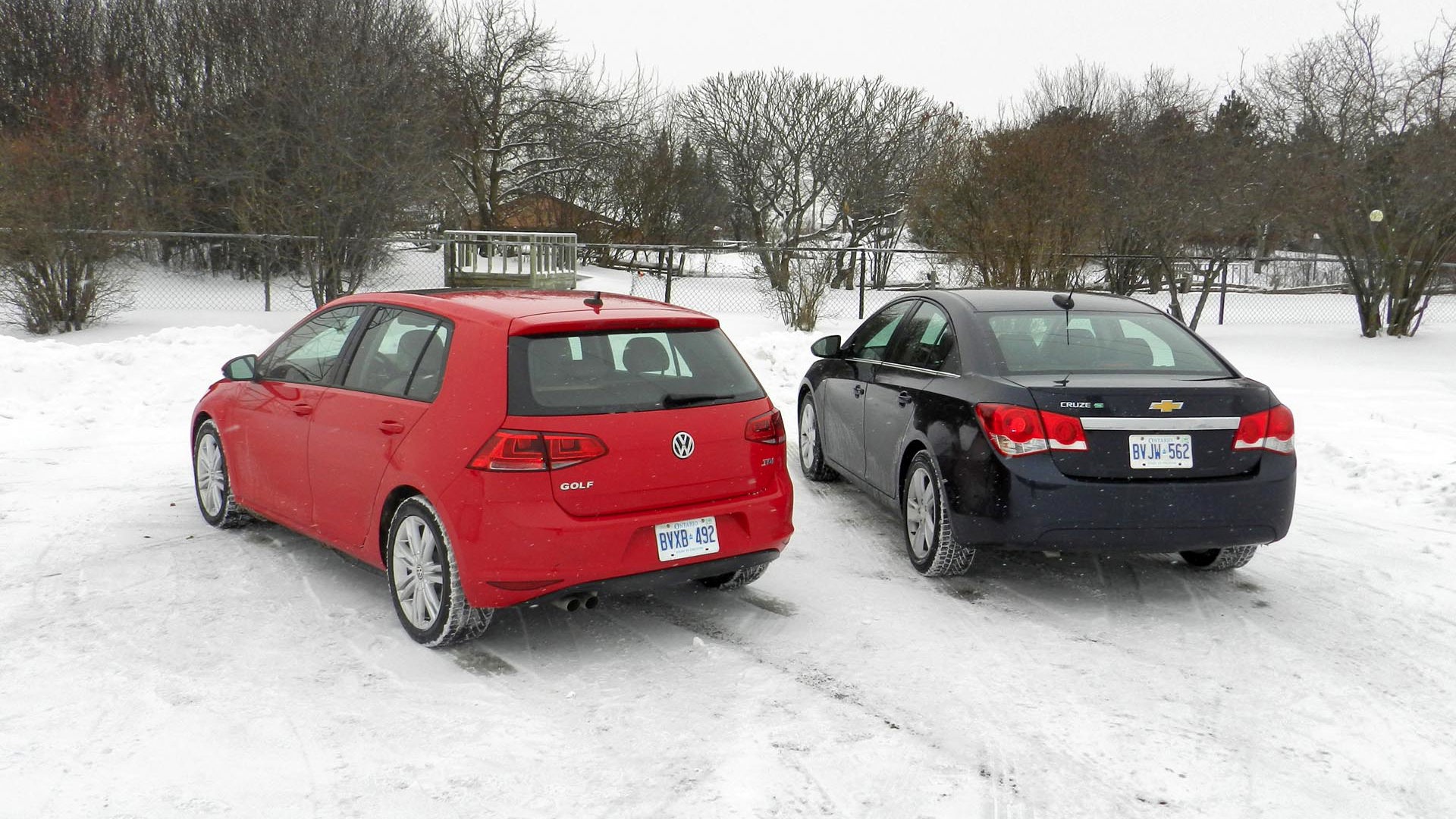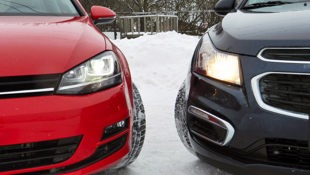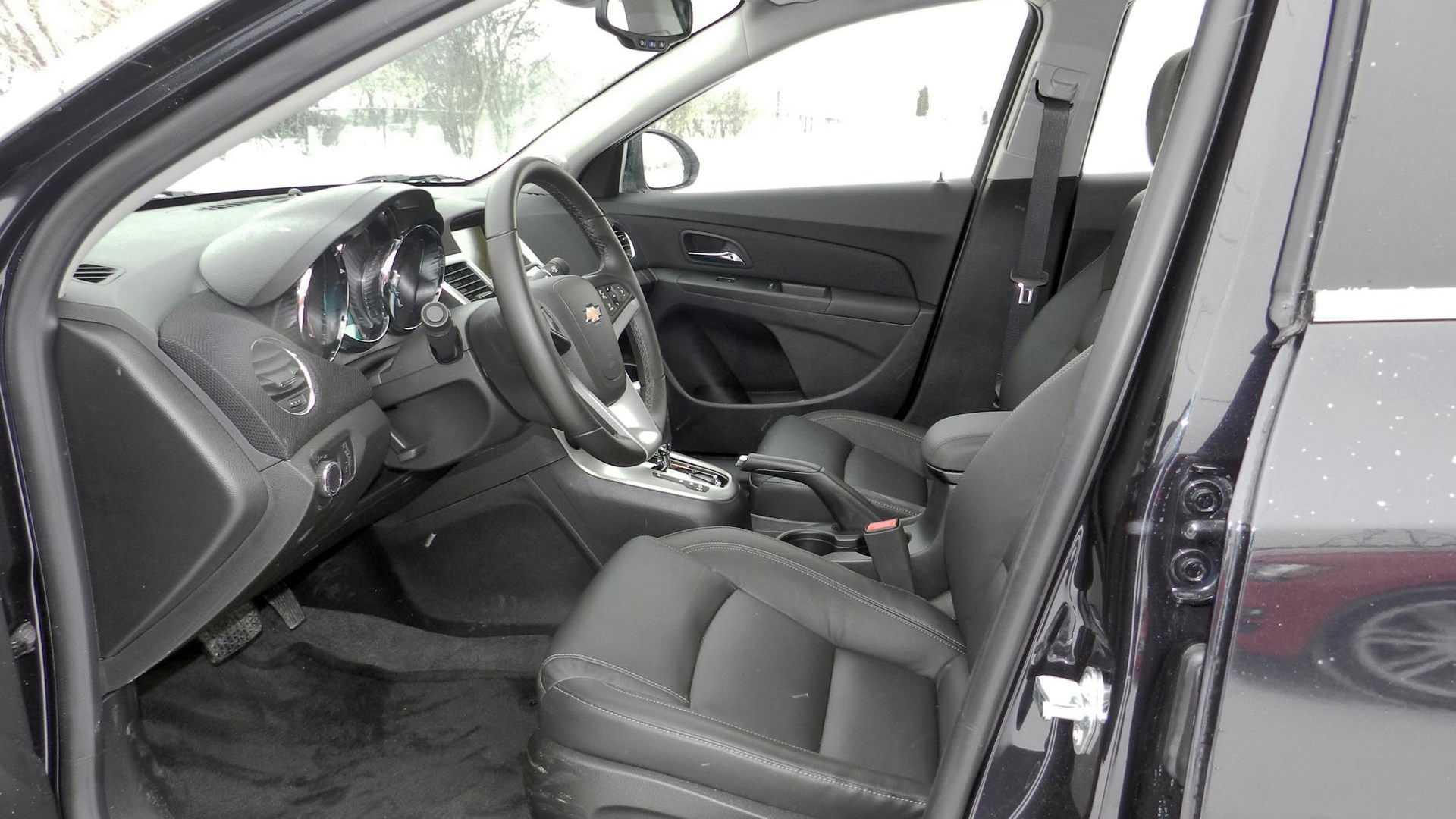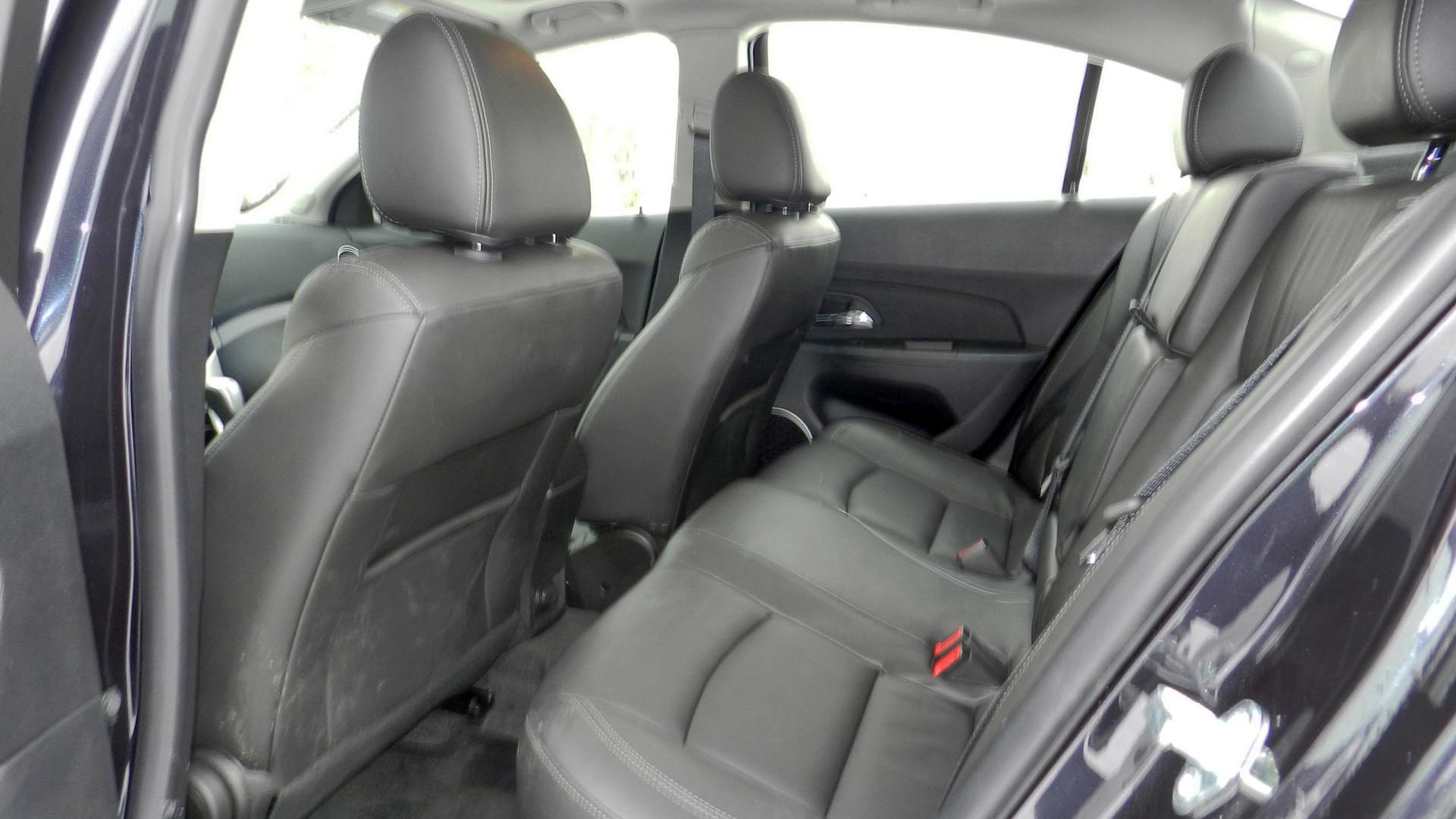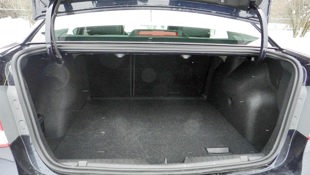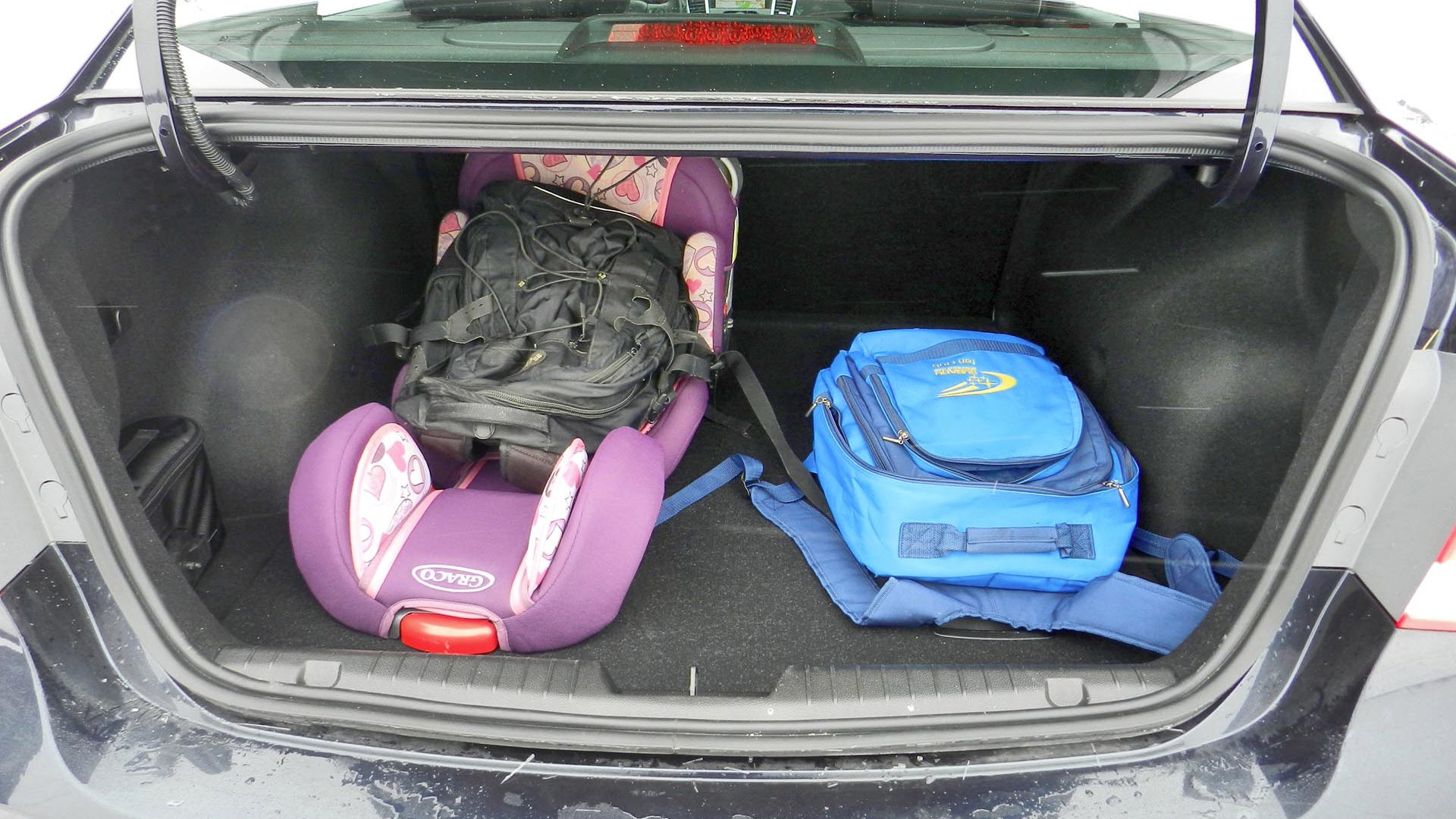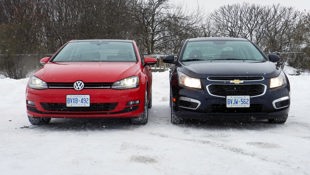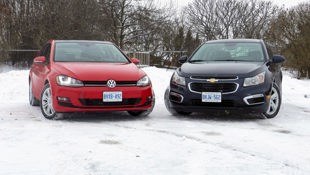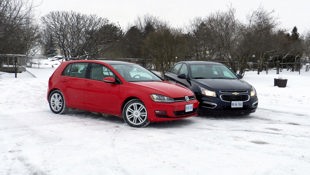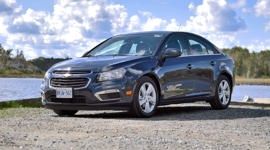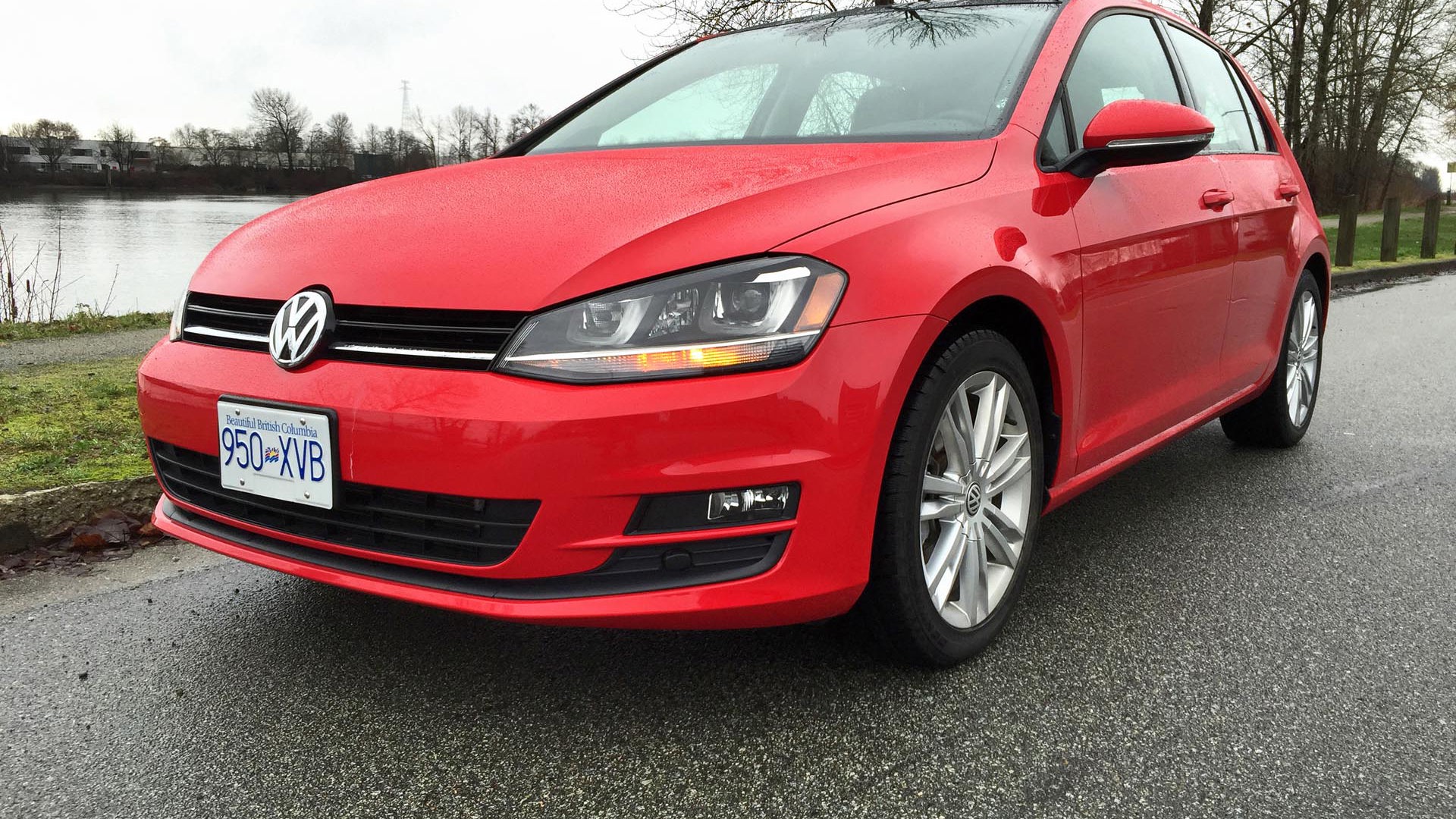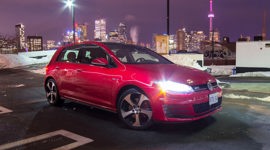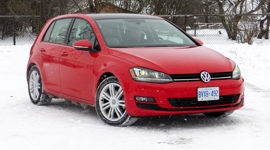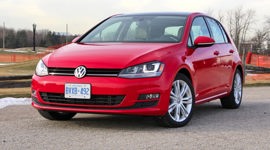Comparison Data
|
Base Price
$25,295
|
$32,395
|
|---|---|
|
Optional Equipment
Enhanced Safety Package – $885, Sun and Sound Package – $1,100 (with $385 package credit), Navigation – $795
|
$2,195 (Multimedia Package: adaptive bi-xenon headlights, 5.8-inch touchscreen media system with satellite navigation, Fender 8-speaker premium audio, LED signature DRLs)
|
|
A/C Tax
$100
|
$100
|
|
Destination Fee
$1,600
|
$1,395
|
|
Price as Tested
$29,775
|
$36,085
|
While these two might look very different on the outside – what with one being a two-box and one being a three-box shape and all – their shared mission puts them far closer together than you might think.
Both are compacts, one hatch, one sedan, and both have a diesel drivetrain engineered for maximum fuel efficiency. One is fresh from a redesign, the other at the end of its current generation, and we were curious how they’d stack up. Yes, it’s true that the Jetta is a closer competitor to the Cruze, but in the absence of a Chevrolet Sonic Diesel we wanted something to pit against our long-term tester Golf. Besides, we already compared the Jetta vs Cruze.
One is fresh from a redesign, the other at the end of its current generation, and we were curious how they’d stack up.
Chevrolet’s Cruze made a big splash when it was first given the diesel engine just a couple of years ago – the Volkswagen Golf has been a diesel stalwart for far longer.
Engines and Transmissions
Both the Cruze and Golf employ a turbocharged, 2.0L direct-injection four-cylinder diesel. Chevrolet extracts 151 hp at 4,000 rpm and 264 lb-ft at 2,600 plus an extra 16 lb-ft on overboost from time to time. That compares well on paper to the 150 hp at 4,300 rpm and 236 lb-ft at 1,750 produced by the Golf TDI.
In practice, however, the story is slightly different. The earlier torque of the Golf helps it feel more punchy off the line. The Golf is aided in part by a 181 kg weight advantage over the Cruze Diesel – 1,393 kg plays 1,574 – but is aided a lot by the DSG transmission. The Cruze’s six-speed automatic is sluggish and feels like it’s constantly working with the car’s onboard computers to dull the 2.0L engine in the name of efficiency.
The DSG in the TDI on the other hand seems to bring the Golf’s slightly less potent mill to life. The shifts are faster and crisper, and happen later in the range. Miraculously that comes with no fuel economy hit. The VW still outperforms the Cruze with an EPA rated 7.8/5.2/6.5 L/100 km city/highway combined. The Cruze manages 8.7/5.1/7.1.
If the tiny men living in the computer boxes were just a little more permissive with the Cruze’s engine and tranny it would be a much livelier car. But they didn’t. The Cruze is a little louder and rougher running than the Golf too and so as it stands, I have to give this one to Volkswagen.
On-Road Manners
The Volkswagen Golf is a renowned driver’s car. Yes, part of that is because of the Golf R and the GTI, but that driving feel is present in the “lesser” models too. So it’s not surprising that when it comes to being nimble, being agile and providing rewarding steering feedback the Golf has the Cruze beat.
The Cruze is a wonderful ride, comfortable, soft, and stable, but lacks the energy of the Golf. The only thing that lets the Volkswagen down is the brake pedal. We’ve experienced this on multiple diesel-power Golfs now, the brake pedal feels mushy. The travel is long and the bite is limp, I feel like it’s related to the brake booster when linked to the diesel drivetrain, but I’m not really sure.
The Cruze Diesel will swallow up the bumps and lumps of the highway with aplomb, but has a vague steering feel. It would be rewarded with a little less boost for the steering too.
If comfort is your priority, the Cruze is really the better bet, but if you like a little more “dynamic” in your life – the Golf wins.
Exterior Design
The Cruze diesel has only just begun to show its age aesthetically. The Chevrolet is inoffensive and tame, but maintains an acceptable level of stature. It’s a well-balanced design.
The Cruze is more slab-sided, and the low-budget halogen headlights aren’t a patch on the bi-xenons of the Golf – they look far more premium.
I like the look of the Golf better, but this is one that could go either way.
Interior Design
This category is less close. The Chevrolet steering wheel is tacky and ugly, while the Golf’s flat-bottomed unit looks slick and sporty. The centre stack of the Volkswagen is angled toward the driver and the rest of the dash, while more simple than the Chevrolet’s curved design, is more elegant.
The Cruze has slashes of unconvincing faux aluminum everywhere while the Golf gets lots of piano black with some alumimum trim to add intrigue. We enjoyed the tan colouring in the Golf, and while it is available in the Cruze we’ve seen it and it’s not appealing.
The Cruze is generally overwrought and messy, while the Golf is austere yet elegant.
Comfort and Ergonomics
Out on the road though, the Cruze begins to show its class. The Golf TDI is well put together, but it seems like Volkswagen has cheaped out on the sound deadening. There’s a lot more wind and road noise evident in the Golf than in the Cruze. Chevrolet have been a doing a good job on that front of late. While the Golf wins the battle side-by-side in the parking lot, the Cruze gets the nod out on the road.
Where the Golf claws back ground is its simple yet sophisticated infotainment and human machine interface. The Chevrolet MyLink system is convoluted and has tacky graphics, while the Golf system is slick and has simple, intuitive controls.
The gauges of the Volkswagen are cleaner and easier to read than the prettier but more painful editions in the Cruze, and I’m not a fan of the blue background of the Chevy TFT screen nestled between the dials.
We should give kudos to Chevrolet for OnStar and for the upcoming onboard 4G LTE WiFi system, which will make the cars it's fitted to truly connected – albeit at a cost.
For most people though, the simplicity of the Golf system will win out.
Passenger Volume and Cargo Capacity
For a car with four proper sedan doors the Cruze doesn’t really stack up against the Golf for rear seat ease of access and legroom. Rear passengers will prefer the Golf, which feels roomier despite offering up 2,648 L to the Cruze’s 2,679. I found egress and ingress of the driver’s seat easier in the Cruze though, and enjoyed the relaxed driving position.
Hatches are well regarded for their versatility but I haven’t quite drunk that Kool-Aid, and I find that with the back seats in play, a sedan offers more usable cargo space in the trunk than most hatches. The photos above show what I mean: the hatch requires a bit of Tetrising to get our spare child seat and a small backpack to fit, the Sedan swallowed both with consummate ease.
On paper the Golf trumps the Cruze at all turns with 671 L of cargo space with the rear seats in place, dropping to 493 if the parcel shelf is installed, but expanding to a whopping 1,520 if the seats are folded.
The Cruze Diesel will only ever pack 377 L, so despite our experience with small items, the Golf can take more.
Value
The Cruze comes in essentially one diesel trim: loaded. Well almost, you can add a sunroof, premium audio, park assist, navigation and blind spot detection to that but you’re still a shade under $30,000 fully kitted out.
The Golf in this comparison came in at just over $36,000 with a bunch of add-ons including multimedia, bi-xenon headlights, navigation and premium audio. The Golf has push-button start and proximity entry, which the Cruze is missing but not much else in terms of creature comforts. Both have heated seats but no heated steering wheel.
The Golf packs neat tricks like the hidden rear-view camera which makes for a bright and clear view at all times, but in terms of checklist items, they’re essentially on par. Yes, you can get the Golf TDI $1,800 cheaper than a base Cruze diesel, but you’re giving up a lot of amenities to do so.
It’s hard to say the Golf is $6,000 better than the Cruze, so I’m giving value to the Cruze.
The Winner
Just like $3 Ebay phone cases, the Cruze Diesel might be the value choice in this match-up, but it is not the best choice. The Volkswagen Golf TDI wins this one fairly comfortably courtesy of its more sophisticated interior, better driving dynamics and high versatility.
| 2015 Chevrolet Cruze Diesel Warranty: 3 years/60,000 km; 5 years/160,000 km powertrain; 6 years/160,000 km corrosion perforation; 5 years/160,000 km 24-hour roadside assistance |
| 2015 Volkswagen Golf Warranty: 4 years/80,000 km; 5 years/100,000 km powertrain; 12 years/unlimited distance corrosion perforation; 4 years/80,000 km 24-hour roadside assistance |
